

Five ways to build a sustainable business travel policy

By Paljor Lama, Senior Consultant
A sustainability-focused business travel policy can be a powerful tool – not only to influence your organization’s carbon footprint but also to provide your employees with the support they need to be able to carry out their responsibilities safely and effectively.
The COVID-19 pandemic and its effect on the global economy have taken sustainable business travel practices from being an important consideration to an essential one. Building a sustainable business travel program encompasses everything from reducing overall emissions and working with sustainable suppliers and carbon offset partners, to ensuring the right communications strategy is in place to secure traveler buy-in.
Here are five ways to incorporate sustainability into your travel policy to make sure you’re ready as the landscape continues to evolve rapidly, and we enter into the new future of travel.
Provide guidance on how to access virtual collaboration tools and who to reach out to for support.
Employees want to do the right thing. Better equip them to replace travel with virtual alternatives. In your policy, detail the communications tools that are available and provide relevant links to access them as well as any training materials that may be available.
This is also an opportunity to provide guidelines on how to create an engaging virtual meeting experience and maximize participant engagement. Provide tips like learning everyone’s names and using them, waiting longer for input, and listening actively. Finally, provide clear guidelines on reimbursable communications expenses to empower employees to encourage them to utilize technology and teleconferencing in lieu of travel.
Strongly discourage one or two-day trips.
Short trips and internal travel are the most easily replaced by virtual tools. Limiting travel to essential trips that are several days long or combining several trips into one will minimize your traveler’s risk and fulfilling your duty of care requirements, while also helping to reduce emissions and increase productivity. Because travel is typically the biggest contributor to an organization’s environmental footprint, reducing the number of trips will contribute to achieving overall sustainability and corporate social responsibility goals.
Download our latest report!
Explore the cutting-edge strategies Advito’s using today to help clients build a sustainable business travel program.
Include a “stay or go” decision tree in the policy and ensure that the logic permeates all facets of the guidelines.
This provides travelers with guidance on sustainable options while keeping them engaged in the decision-making process. Include guidance on selecting meeting venues with considerations of optimum locations and routing. Consider reinforcing this tactic with some statistics throughout the year. Communicate with relatable numbers, like “If we reduce travel by X%, we could save $$$, X in carbon emissions and X time spent on the road.”
Put employee well-being front-and-center.
Elevate the traveler experience by making their best interests the priority. Actively educate that travel alternatives will not only generate savings but also improve employee work-life balance, along with their overall well-being. Consider targeting road warriors, educating them on the negative effects of frequent travel.
Influence travelers to make lower carbon emission choices.
Integrating sustainability messaging into your employee engagement strategy is the best way to give them the information they need at the right time in the decisions making process. Consider creating assets to communicate messaging like:
- Consider trains before planes. Trains are more energy-efficient per passenger mile than planes or cars, making them one of the most eco-friendly transportation options (outside of walking or riding bikes).
- If you do need to fly, choose a newer aircraft, and fly direct instead of connecting. Newer aircrafts burn significantly lower fuel (look for Boeing 787, Airbus 321 NEO or the Airbus 350) and so do direct flights. Choosing both will mitigate your carbon impact.
- When possible, utilize public transport or rent electrical vehicles.
- Look for green-certified accommodations.
Incorporating these sustainability elements into your travel policy will not only improve employee and public affinity to your organization, but also future fit your program to minimize disruptions and maximize employee safety and productivity. Make travel an integral part of achieving your organization’s sustainability goals.
MORE CONTENT JUST FOR YOU
Csrd and the future of business travel: what travel managers need to know, from stakeholder buy-in to stakeholder inclusion: how to increase adoption of esg initiatives.

How To Make Business Travel More Sustainable
Business travel is having a resurgence as the COVID-19 pandemic slows down and in-person events have resumed. Professionals are enjoying face-to-face collaboration and networking after several years of working remotely. In fact, 32% of consumers are planning to travel for business in 2023.
As organizations resume regular business travel, it brings up questions of sustainability and ethics. How should we reduce our impact on the environment while traveling for business? How can we be mindful of the communities we’re visiting and have a positive impact?
Now is the perfect time to rethink the way we travel for work. The public is more aware of sustainability issues than ever. According to a recent report from the Global Business Travel Association , 89% of business travel industry professionals cite sustainability as a priority for their company. This cultural shift means that there are plenty of resources and tools to help your organization implement more sustainable business travel.
What is sustainable travel?
At its core, sustainable travel focuses on minimizing the negative or harmful impacts of travel while simultaneously emphasizing its positive aspects. For business travel, changes typically need to be made on both an individual and organizational level.
Reducing our impact on the environment is one of the most talked-about aspects of sustainable travel. According to the GBTA, the top three sustainability priorities for business travel professionals are emissions reduction, energy efficiency, and waste reduction. Environmentally-friendly behaviors are a key component of any sustainable travel strategy.
Social and cultural considerations are an equally important component of sustainable travel. Mass travel dramatically changes a destination’s economy and culture in both positive and negative ways. Sustainable business travel uplifts the community you’re visiting, rather than creating further challenges for the people who live there.

Ways to make business travel more sustainable
There are many ways to make your business trips more sustainable without compromising on important in-person cooperation. Even small changes to your business travel routine can make a big impact in the long run. Here are 12 of our best sustainable travel practices for business.
1. Book business travel selectively
Before planning a business trip, consider whether there are remote work alternatives. Video conferencing and digital project management tools have made it easier than ever to conduct meetings from anywhere in the world without traveling.
Of course, there will always be important meetings, conferences, and events that need to happen in person. Consider scheduling multiple meetings or events in the same trip when possible. Eliminating unnecessary business trips will give your team more time and energy to focus on essential travel and reduce your corporate carbon footprint.
When deciding whether a trip is essential or not, keep your destination in mind. Some destinations are adversely affected by high volumes of tourism, while others are encouraging travel because of its economic benefits. For example, Barcelona has long struggled with high volumes of visitors, but there are many other cities and towns nearby that work well as alternatives for conferences.
2. Book lower emissions flights
The aviation industry is a significant source of CO2 emissions globally. As of 2018, flying was responsible for 2.5% of global carbon emissions . Booking direct flights will help you reduce your business travel carbon footprint overall.
Not only do direct flights cover shorter distances, but they also reduce the number of takeoffs and landings completed during your trip. Carbon emissions are highest during takeoff and landing. Along with reducing emissions, many business professionals prefer to fly direct. You’ll spend less time in the air and have more time once you arrive at your destination.

Additionally, flying in economy class accounts for fewer emissions overall than business class. Although you’ll have a little less legroom, your individual carbon footprint will be smaller because there are more people on the flight.
When choosing an airline, opt for carriers that have a sustainability strategy in place. For example, some airlines have opted to invest in fuel-efficient planes and sustainable fuel options.
3. Consider eco-friendly transportation alternatives
When planning your trip, consider a variety of different transportation options to find the most eco-friendly choice. If your final destination isn’t too far away, consider taking a train or intercity bus instead of flying. For group trips, carpooling is also an effective way to reduce your carbon footprint, especially if you have access to an electric or hybrid vehicle.
While these alternative modes of transportation may take longer than flying, many people find them more comfortable and less stressful. For example, trains, buses, and cars offer more legroom than plane seats. In some cases, ground transportation is cheaper than flying as well.

4. Walk, bike, or use public transit at your destination
Once you arrive at your destination, skip the rental car or taxi to reduce your emissions. Look for hotels that are within walking distance to the office or event venue where you will be meeting.
Additionally, look for hotels in areas that have public transportation or bike share options and encourage your team to use them. Rideshare apps are a good alternative if public transportation isn’t available.
Look at all of the public transit options in your destination. Many travelers focus entirely on local subway systems, but buses can also be a very effective and affordable way to get from place to place. Many cities also have commuter rail systems, which are very effective if you need to travel to a nearby suburb or town.
5. Invest in carbon offsets
Virtually every form of travel will result in some carbon emissions, even if you use eco-friendly modes of transit. Investing in corporate carbon offsetting will help you balance out the CO2 you create with projects that reduce greenhouse gasses elsewhere.
Our carbon neutral corporate travel program gives businesses a straightforward way to neutralize emissions. First, we’ll calculate your total travel carbon footprint based on all of your transportation and hotel stays. Then, you’ll purchase an appropriate amount of offsets or sign up for an ongoing subscription plan. If you’d prefer to automate the process, our carbon api can be integrated with your corporate travel management software to power carbon measurement and offsetting for each booking.
If your employer doesn’t have an offset program in place, you can still balance out your own business travel emissions. Our online carbon calculator can be used to calculate and offset emissions from one or multiple trips in just a few clicks.
Regardless of how you purchase carbon offsets, the money you spend goes to our mixed portfolio of climate projects . This includes projects like maintaining forests, generating clean renewable energy, or restoring degraded wetlands. These projects fight climate change by removing CO2 from the atmosphere or preventing new emissions from happening.
Along with reducing emissions, these projects also create added benefits for communities and wildlife which can advance your broader ESG goals. Carbon offsets should be utilized alongside decarbonization tactics to minimize your negative impact on the environment and accelerate the global transition to net zero.

6. Choose hotels with environmentally friendly practices
According to the Sustainable Hospitality Alliance, hotels need to reduce per-room carbon emissions by 66% by 2030 . Many major hotel chains have already implemented environmentally friendly practices to conserve energy and water and minimize waste.
Single-use plastic is one of the largest sources of waste, so many hotels have switched to bulk toiletries as well as reusable silverware and recycling whenever possible. Additionally, many hotels are using composting to reduce food waste and have altered their on-site menus to be more environmentally friendly.
When selecting hotels for your trip, look into their sustainability practices and use of renewable energy sources like solar, wind, and geothermal power. For example, many hotels will now only provide new towels and sheets upon request to reduce the amount of laundry they do each day. Many modern hotels also use smart technology that automatically shuts off the lights or turns down the thermostat to cut back on electricity usage.
Environmentally friendly hotels will usually have a detailed sustainability plan on their website. Certifications from LEED and other sustainability organizations are also a positive sign to watch for.
7. Go paperless with your travel documents
Switching from paper to digital travel documents is a simple and convenient sustainability practice. Not only does this reduce paper waste, but it makes travel planning and organizing more efficient.
Most airlines have their own apps where customers can download digital boarding passes and view details for upcoming flights. Some hotel chains also have mobile apps where you can book upcoming stays and view booking confirmations.

For group travel, use cloud-based tools to share itineraries, schedules, and other key pieces of travel information with your entire team. Paper documents often end up lost in the shuffle, while digital documents are easily accessible as long as you have a device with internet access.
8. Support local restaurants and vendors
Eating at local restaurants is one of the best ways to make sure that the community benefits from the dollars you’re spending in their city. Additionally, it’s one of the best ways to get to know the city and give your team an experience that they wouldn’t get at home.
When planning business dinners for your trip, choose restaurants that are owned and operated locally, rather than large chains. Additionally, look for restaurants that offer fair pay and good working conditions for their staff.
If possible, look for restaurants that use locally sourced ingredients, as this lowers the carbon footprint of your meal. Opting for vegetarian or vegan dishes when available is another way to minimize your impact on the planet. In general, eating a vegetarian diet results in about half the carbon emissions of a meat-heavy diet. Even if you’re not fully vegetarian or vegan, cutting meat out of your diet occasionally or eating less beef still makes a difference.
9. Offer reusable water bottles for your team
When you’re on the go, it’s easy to pick up single-use plastic water bottles to stay hydrated. However, even a few plastic water bottles per day on a trip can quickly lead to a large amount of waste.
A fun and easy way to encourage sustainability among your team members while traveling is to provide branded reusable water bottles for travel. Many airports, hotels, and conference centers have water refill stations to encourage sustainability.
Company water bottles are not only sustainable, but they’re a great way to increase your organization’s brand awareness. You can take things even further by offering other reusable branded items, such as lunchboxes or shopping bags.

10. Be respectful of the local community
When you’re traveling for business, it’s important to remember that you’re a guest in someone else’s community, so treat it with the same kindness that you would treat your own community. Avoid littering and leave any space you visit the way you found it.
Additionally, be respectful of the local culture and customs. Research the culture before you visit and make sure that your entire team is aware of the proper etiquette for both business and social situations. This way, you’ll present your organization in a positive light and avoid offending those around you.
In addition to researching etiquette and cultural norms, it’s also important to read up on the history of your destination as well as any relevant current events. Not only will this help you be a more respectful guest, but it will also help you navigate your destination more effectively.
For example, Hawaii is now limiting access to certain parks and attractions that are sacred parts of local culture. Doing some advance research will help your team understand which places are appropriate to visit and which are best left to locals.
11. Get your entire team on board
In order for your sustainability initiative to be successful, you’ll need everyone in your organization to buy in. When everyone on your team cares about sustainability and participates in your initiatives, you’ll be able to make progress more quickly.
To ensure that everyone is on the same page, implement a company-wide policy for sustainable travel. Be as specific as possible in your policy to set appropriate expectations for your team members. Your sustainability policy will serve as a helpful guide for your team members as they book travel tickets and accommodations.

Many of the world’s largest organizations are already implementing their own policies and incentives for sustainable business travel. For example, Microsoft is already buying sustainable aviation fuel credits for their team, which covers the cost of cleaner fuel for future flights. Salesforce has also implemented a strict sustainability policy which partially ties executive pay to ESG performance, including their carbon footprint. To enable their employees to make climate-friendly choices, Salesforce has a booking tool that recommends the lowest-emission modes of travel.
Once you’ve defined your travel policy, the next step is to offer sustainable travel training for your team. This will give your employees more context for why sustainability is so important and how to be more conscientious when traveling for work. We offer educational programs on responsible travel and climate action to help organizations empower and engage their staff. Get in touch if you’d like us to host a training session for your team.
12. Continuously measure your impact
As your organization works towards more eco-friendly and responsible travel, it’s important to track your progress. Actively monitor your carbon footprint to determine if your strategy is working, and look for places where you can improve even further.
You may need to adjust your sustainability strategy as your organization evolves. As your company grows, you’ll likely have access to more resources, but you’ll also have more employees and more trips to account for. Standardizing your travel policies early on and communicating clearly about any changes will help keep everyone on the same page.

In addition to calculating your organization’s carbon footprint as a whole, calculate the carbon footprint for each of your employees as they travel. This will incentivize your employees to travel more sustainably on their own. Your organization can even offer rewards for team members who reduce their carbon footprint the most.
As we move into a new era of business travel, now is the perfect time to rethink your organization’s strategy and implement new sustainability practices. Sustainable business travel is unique in that it is mutually beneficial for both your organization and the community around you.
If you’re looking to get started with your sustainability journey, be sure to check out our carbon offset program and use our carbon footprint calculator to estimate your current output.

- May 9, 2023
- Blog , Climate Change , Conscious Business , People & Culture , Sustainable Travel , Waste & Pollution
Recent Posts
How to spot and avoid greenwashing in tourism, climate impact update – 2024 portfolio 2, what is biochar and how is it a tool for sustainable tourism, biochar carbon removal training in thailand, kudos carbon offsetting feature demo, kudos travel technology partners with sustainable travel international to implement its climate impact apis to scale carbon mitigation efforts.
- January 2024
- December 2023
- November 2023
- October 2023
- September 2023
- August 2023
- January 2023
- November 2022
- October 2022
- September 2022
- February 2022
- January 2022
- December 2021
- October 2021
- September 2021
- January 2021
- December 2020
- November 2020
- October 2020
- August 2020
- February 2020
- January 2020
- December 2019
- November 2019
- October 2019
- September 2019
- August 2019
- October 2018
- September 2018
- February 2018
- December 2017
- November 2017
- October 2017
- September 2017
- August 2017
- February 2017
- October 2016
- September 2016
- February 2016
- November 2015
- October 2015
- September 2015
- August 2015
- September 2014
- © 2024 | Sustainable Travel International
- Privacy Policy
Download Our Sustainable Travel Tips List
Subscribe to get your free tips list, plus sustainable travel emails and content
Check your inbox for our Sustainable Travel Tips.

Sustainable Business Travel Policy and Best Practices
Sustainability in the scope of travel comes up most frequently in the context of “sustainable tourism,” minimizing the negative and maximizing the positive impact. On the corporate side of travel , business needs to drive destination and timing, and focus has long been on minimizing other concerns, such as cost and traveler inconvenience.
However, prior to the COVID-19 pandemic, sustainable business travel began emerging as a very strong topic of interest for both companies and vendors. While sustainability took a backseat to more immediate concerns in 2020, as business travel swells back, more and more corporate travel programs are looking to not only engage with sustainable business travel policies but for concrete data and actions.
Vendors, anticipating this need, have likewise been taking steps to showcase sustainability data. There is a substantial gap, though, between the data companies are looking for and what vendors have available—in many cases coming down to estimate versus actuality.
What Is Sustainable Business Travel Policy?
Sustainable business travel policies often start with Greenhouse Gas (GHG) emission reporting and whether a company discloses theirs, for example, in annual sustainability reports, industry updates. Increasingly, KesselRun’s clients are reporting that their employees find it important to work for a company that prioritizes sustainability and that their own customers or clients have sustainability goals they expect these organizations to meet. Sustainability has become a talking point in sales and customer conversations, as well as part of a business’s social and environmental role in their community.
The new expectation for vendors is to be able to provide total CO2lbs and miles, but traditional data is in fact providing estimates — TMC data, both at time of booking and post-trip, reflects these estimates, never reconciling what actually occurred during the flight. The estimates provided may or may not take into account aircraft type or class of service, but will not take into account actual load factors of the flight and/or seasonality and wind speeds.
When turning to the airline themselves to provide more specifics, generally, these reports exist more on an on-request basis, many in beta or in summary form, and often still ‘estimate only’. Airline partners should expect more sustainability report availability over the next few years.
Hotel emission information remains even more elusive. Preferred hotel chains may be able to provide a certain level of insight for an organization’s preferred stays but are unlikely to offer further detail, and any direct bookings—a particular concern for programs with high or unknown leakage—may not be on that preferred code and thereby excluded. For non-preferred, non-brand stays at individual hotels in a global program, chasing emission specifics is currently a Sisyphean task.
Car rentals provide the clearest picture right now, as actual mileage driven can be provided by rental car partners. With that said, organizations should still be aware even car partner-provided information may be incomplete. Business rentals made outside the corporate agreement would not be included; leisure rentals made on the corporate agreement would be, skewing even that picture.
Amid this ongoing ambiguity on the data remains uncertainty on actions. Are corporations going to try to prohibit charters or first-class flights, particularly for travelers already accustomed to either, to lower emissions?
A sustainable business travel policy is where companies’ intentions and reality should meet. We are seeing organizations look to add sustainability guidelines into their official travel policies, recognizing that it may require more development across the industry to be able to enforce these policies or make the language stronger surrounding sustainability goals.

How to Create a Sustainable Business Travel Policy
The first step is to make sure your organization has clearly defined, scientific-based goals, for example ‘are you focused on Scope 1, 2, or 3 emissions?’, and then to look at whether these goals are public within your organization and if travelers understand how their travel relates to those goals.
Travel education around sustainability is key to achieving these policy goals, but in order to reach that stage, companies need to address wide-scoping questions first, such as:
- Do you have “sustainability travel budgets” in place per traveler? Per department?
- Do you have offset programs in place?
- Do you have vendor requirements relative to their sustainability initiatives on a procurement level? For example, are you asking hotels in your preferred program about their processes, if single-use plastics are being replaced by glass or compostable material?
- How is emission data being served up to travelers in the booking process?
- Does your TMC have the ability to capture “sustainability” as a reason code for a more expensive booking?
- Have you set a dollar value per kg emitted to help set company policy, tolerance levels and to help make the numbers more meaningful to travelers?
- What tolerance for cost does your organization have relative to vendor pricing? i.e. what percentage of cost increase are you willing to accept for a more sustainable travel option?
- Does your travel policy encourage consolidation of trips/trip purposes to limit flights?
- Are offsets reimbursable expenses?
Establishing a sustainable business travel policy involves all aspects of the business, not merely the travel department.
How KesselRun Can Help
From KesselRun’s experience developing our clients’ sustainable business travel programs , here are our top 10 broad-spectrum tips:
- Get un-siloed. This is a conversation that should span many departments – travel, finance, risk, CSR teams, and more.
- Review historical data. While 2019 is outdated, it may make sense to look at month over month or quarter over quarter for the last several years
- Frame the discussion around projections for the remainder of 2022 travel volumes
- Set realistic, scientific-based goals for your organization & publish them broadly
- Update your policy with clear and specific information relative to sustainability
- Update your OBT and other points of booking for travelers to reflect your goals and relevant data
- Ensure travelers have meaningful, relevant and timely information relative to their travel and the organization’s sustainability goals
- Monitor & adapt – sustainability remains in its infancy for many, if not most, companies. Know that goals may change; data accuracy and sources will change; and technology will improve
- Report on progress in aggregate: it is still too early to track micro-trends
Should you need assistance in building a sustainable business travel policy or program, contact KesselRun today . They can analyze historical data; help develop teams and realistic sustainability goals; write a travel policy drawing on best practices but specific to your business culture and needs; optimize booking processes and in-line information; and help set up future reporting and metrics, to prepare for changes yet to come.

Cara Cotter has been a corporate travel business consultant for seven years. She is accustomed to wearing many hats and changing gears at the drop of one.

- Airline Travel 10
- Business Expenses 8
- Consulting 11
- Corporate Travel 47
Related Posts
What we learned about corporate travel in 2023.
What is a Business Travel Consultant?
Comments are closed.
KesselRun Corporate Travel Solutions is a management consulting firm that specializes in developing, managing, and optimizing corporate travel programs.
800-420-6687 Email Us
Atlanta, GA New York, NY Denver, CO Washington, DC
Consulting Supplier Sourcing Program Management Small & Mid-Market Business TMC RFP Consulting Risk Management Federal Client Services CapTrav Additional Services
About Us News & Blog Contact Us Travel Risk Assessment Corporate Travel Review
© 2024 KesselRun Corporate Travel Solutions.
- Management Consulting
- RFP Process
- Travel Audit
- Federal Client Services
- Supplier Sourcing
- TMC/Agency RFP
- Expense Management

Sustainable Business Travel: Navigating The Road To Greener Journeys

By Earth911

Business travel is responsible for a large part of a company’s carbon emissions, negatively impacting the environment and contributing to climate change. Companies need to strive to align their operations with sustainable practices, and the concept of greener business travel needs to take center stage.
In an era marked by growing environmental consciousness and a pressing need to address climate change, the realm of business travel needs to undergo a profound transformation. Sustainable business travel refers to the practice of conducting corporate travel activities in a manner that minimizes their negative environmental, social, and economic impacts while aligning with broader sustainability goals. Organizations to reduce the carbon footprint, conserve resources, promote employee well-being, and make ethical choices when it comes to travel-related decisions.
Business initiatives to travel sustainably can include assessing the urgency and goals of a trip and considering alternatives to travel such as virtual meetings, utilizing public transportation and sharing rides, reducing the number of stopovers on business flights, and collaboration with sustainable partners for accommodations, airlines, and transportation services.
As many as 76% of companies say they have already incorporated or are planning to incorporate sustainability objectives in their travel policies . Forty-three percent of respondents in the Corporate Travel Study 2023 say they are implementing a structure to assign carbon-emission budgets to teams alongside financial budgets.
This commitment resonates with employees as well. In a 2023 SAP Concur survey , globally 36% of employees expect their employers to allow them to make out-of-policy bookings to reserve sustainable options. And in a study on business travelers’ attitudes toward sustainability, more than 70% of employees want their company to do more to enable sustainable travel – and would take a more sustainable mode of transport if financial incentives or sustainability programs were available.
Sustainability will become the new norm in business travel policies. Employee awareness and education is required to ensure that employee expectations are in line with corporate sustainability goals. As a concerned employee, manager or owner, now is a good time to examine how your company’s travel practices can be improved.
How To Prioritize Sustainable Travel
The fusion of sustainability and business travel requires a significant shift in corporate ethos. Beyond the traditional focus on profit margins and productivity, companies need to recognize the imperative to minimize their carbon footprint and contribute positively to the planet. The following guidelines provide a roadmap for companies to transform their business travel practices to being more environmentally responsible:
- Develop or revise business travel policy . Sustainability considerations and goals should be clearly embedded in business travel policy. Develop or revise business travel policy to encompass the guidelines mentioned below.
- Develop a priority framework. Create a priority framework that outlines the criteria for determining the necessity and urgency of business travel. Consider factors such as the purpose of the trip, potential environmental impact and available technological alternatives. Engage all stakeholders to understand diverse perspectives.
- Implement a pre-travel approval process. Establish an approval process that requires compliance with sustainable policies and aligns with the business travel priority framework. Include a mandatory cost-benefit analysis for each business trip to evaluate the potential financial and environmental gains or impacts.
- Analyze travel data. Review historical travel data to identify patterns in frequency and destinations of business travel to identify opportunities for reducing travel or replacing it with more sustainable alternatives.
- Go digital, local and regional: Leverage technology such as video conferencing and collaboration software to reduce the need for physical travel. Consider organizing regional meetings and leveraging local partners to minimize the need for long-distance travel, reducing both carbon emissions and travel expenses.
- Embrace flexible work arrangements. Explore flexible work arrangements, such as remote work or flexible hours, as alternatives to frequent business travel.
- Collaborate on sustainability initiatives and choose sustainable partners. Collaborate with industry peers to develop joint sustainability initiatives. Evaluate the sustainability practices of suppliers and vendors related to business travel. Partner with those who share similar sustainability goals, initiatives, practices, and programs, such as improving fuel efficiency, adopting sustainable aviation fuels, reducing single-use plastics, using renewable energy sources, and implementing water conservation practices.
- Promote environmentally responsible accommodations and transportation. Promote sustainable accommodation options and encourage employees to use public transportation, rideshares, and environmentally-friendly rental vehicles.
- Prioritize employee well-being. Consider the impact of travel on employee well-being. Educate employees about the positive effects of reduced travel on work-life balance and potential negative health impacts of frequent travel.
- Foster a culture of sustainability. Provide training to employees on the environmental impact of business travel and the importance of sustainable alternatives. Empower each employee to contribute to the company’s sustainability efforts. Consider implementing incentive programs to reward employees for choosing sustainable travel options.
- Track and reduce carbon footprint; consider offsetting emissions. Implement mechanisms to track and calculate the carbon footprint of business travel. Explore options for carbon offsetting to counterbalance the environmental impact of unavoidable travel. Set meaningful emission reduction targets, regularly assess the effectiveness of sustainable travel initiatives and use data-driven insights to make informed decisions and adjustments.
- Monitor regulatory changes. Stay informed about evolving regulations and policies related to carbon emissions, sustainable travel, and environmental standards. Adapting travel practices to align with changing regulations can position a company as a leader in sustainable business travel.
Sustainable business travel is not just a trend; it is a vital component of a responsible and forward-thinking corporate strategy. By embracing the guidelines outlined above, organizations can embark on a road towards greener business journeys and contribute meaningfully to a more sustainable future.
Anuja Agrawal is the co-author of Check-Up, Check-In: Why Business Travel Strategies Should Prioritize Employee Health And Wellness. Agrawal also is the founder/CEO of Health Flights Solutions, which has developed the leading platform for medical travel. She is a recognized leader in the medical and wellness travel industries and is committed to fostering practical conversations on the opportunities, efficiencies, improvement, and growth of the travel industry.
We’re serious about helping our readers, consumers and businesses alike, reduce their waste footprint every day, providing quality information and discovering new ways of being even more sustainable.
Related Post
Recycling mystery: metal lids & bottle caps on glass containers, how you can help create a healthier ocean by composting, how medical sharps disposal came to oklahoma.
How to build a sustainable travel policy
Jul 27, 2022

Running a sustainable business doesn’t start and end in the office. You must always consider it, even during business trips, which means putting a sustainable travel policy in place.
Building a sustainable travel policy will help to reduce emissions and promote employee wellbeing as your team travels. To get it right, you need to review the forms of transport your team takes and make sure you partner with sustainable companies — like Bolt Business .
What is a business travel policy ?
If any number of your employees travel for work then business travel policies are essential. A corporate business travel policy increases safety, ensures reliability, and keeps costs down.
Business travel policies clarify to your employees why, how, and when they can travel for work. These policies are essentially a group of business travel guidelines that let your employees know:
- Which forms of transport they can use;
- How much they can spend;
- What they can and can’t expense.
Regarding expenses, with Bolt Business , your employees can charge ground travel straight to your company in the Bolt app , removing the need to use their own money and lose time claiming expenses.
But your business travel policies shouldn’t entirely revolve around spending. Of growing importance is making sure your business travel policies consider sustainability. And the best way to do this is by building a sustainable business travel policy.
What is a sustainable travel policy ?
The main aim of many sustainable travel policies is to reduce carbon emissions from business travel. And reducing environmental impact must be a key part of your company’s travel policy.
But the sustainable travel policies you implement should consider 4 sustainability pillars: environmental, human, social, and economic.
This means your company’s travel policy needs to cover:
- Environmental issues;
- Employee wellbeing;
- Economic impact.
Including the above will give your team a safe way to travel for work while having little to no environmental impact.
Let’s look at each of these pillars in more detail. 👇
Environmental issues
As travel makes up 16.2% of global greenhouse gas emissions , addressing business travel and turning to more sustainable options will boost your company’s green credentials.
To achieve your green travel ambitions:
- Reduce carbon emissions;
- Offset remaining emissions;
- Work with sustainable travel partners.
Employee wellbeing
A stressful and long commute has a negative impact on the success of any business trip. And f or 90% of employees , the quality of business travel impacts their job satisfaction.
You must do everything possible to achieve business goals while maintaining job satisfaction for your travellers.
Frequent employee surveys will help you understand how satisfied your team is with your business travel policies .
Economic impact
Travelling allows your business to contribute to the local economy. Encourage your team to support local accommodation venues, transport services, and businesses.
Acting in an economically sustainable way will be a great benefit to the local economy in your host city and country.
Why now is the time to have a green business travel plan
The number of companies recognising the importance of sustainability in business is growing. And for many of those companies, business travel is a significant source of carbon emissions.
Employees want to work for companies with sustainability at the heart of their business plans.

How to build a sustainable business travel policy
When building a sustainable travel policy, the best place to start is to understand how and where you need to improve. To do that, it’s crucial to calculate the current carbon emissions from your company’s business travel.
Once you’ve done that, you can take the necessary actions:
- Use digital tickets and receipts;
- Find alternatives to air travel;
- Offer incentives to encourage greener travel habits;
- Turning to electric or hybrid company cars .
You can then offset any remaining carbon emissions.
Understand your current travel carbon emissions
58% of companies measure the carbon emissions of their business travel. This is a great place to start when building a sustainable travel policy, but it needs to go further. Few companies are taking any action once they know their carbon footprint:
- 17% of companies offset carbon emissions from travel;
- 19% encourage the use of public transport or low-emission vehicles;
- 22% consider their carbon impact when working with suppliers.
It’s worth noting that this final statistic is expected to rise significantly as more legislation encourages companies to monitor and report on their Scope 3 carbon emissions .
Offset carbon emissions
Knowing your company’s carbon footprint gives you a platform to build a sustainable travel policy .
It’s important to recognise the areas of your team’s business travel that emit the most carbon — most likely air travel . In countries such as France, flights are now banned when the same journey can be made by train in less than 2.5 hours.
You can then take steps to find alternative forms of transport, such as public transport or low-emission vehicles.
When alternatives aren’t possible, offsetting carbon emissions is an option. This can involve:
- Making capital investments in green technology;
- Investing in renewable energy or energy efficiency projects.
Rather than handling this yourself, you can partner with sustainable travel companies. All Bolt rides in Europe are carbon-neutral as we contribute to carbon offset projects around the globe. And you can get a Carbon Offset Certificate to prove that the emissions from these trips have been neutralised.

Your team will also be able to use our other sustainable travel options, including electric vehicles and climate-positive electric scooters.
Use digital tickets and receipts
Planting trees is an important part of managing carbon emissions. But if you’re still using paper tickets and receipts, that contributes to trees being cut down.
Ordering travel services online has made it easier to remove physical tickets, but receipts are still a problem — especially when it comes to expense reports.
Bolt Business automatically provides a pre-filled digital receipt after every journey. This makes travel more sustainable and saves your team hours of reporting time.
Find alternatives to air travel
Air travel makes up 90% of emissions from business travel. Bringing down the number of flights your team takes will set your business on its way to achieving its sustainability goals.
But when business takes your team overseas, it can be hard to avoid air travel.
Train travel is often the best alternative; in some cases (like the Eurostar), it can take you overseas without needing to fly. You’ll also save time going through security.
If the trip’s for a meeting, make sure it actually needs to be in person. A video call could save a lot of carbon. Otherwise, avoid first-class air travel as emissions are three times higher than economy per person.
“Business trips are under much more scrutiny than in previous years regarding sustainability. If there’s not enough value in the trip, it won’t happen.” Nick Powell, Vice President, Bolt Business
You should also focus on ensuring the travel to and from the airport is sustainable — limiting the environmental impact.
Turn to electric or hybrid vehicles
The company car has been an integral part of business travel for years. But as fuel costs continue to rise, many companies are looking at alternatives to managing a fleet.
You could turn to a car allowance or company fuel cards , but these won’t save you from rising costs.
And they shift the problem of carbon emissions onto the employee. Only 4.6% of cars on EU roads are powered by an alternative to petrol or diesel — making it highly likely that most of your team will be driving petrol or diesel cars.
Turning to electric or hybrid company cars will help to lower carbon emissions. But replacing an entire fleet will be expensive.

Sustainable travel policy template
The ideal sustainable travel policy will make it easy for your team to travel without harming the environment.
A sustainable travel policy can include:
- Allowing electric scooter and e-bike rides;
- Permitting travel to and from specific locations;
- Limiting the maximum number of rides within a certain timeframe.
By introducing a sustainable travel policy , your company could end up with a separate policy for expenses. But these policies can work together.
With Bolt Business, you get a digital pre-filled receipt after every journey, and admins can access full travel reports. This means your travel and expense policies can work together and save your team hours of time reporting expenses.
Supporting your team to travel sustainably
Having a sustainable travel policy in place is the first step. It’s then a case of giving your team the tools they need to make environmentally-friendly travel choices.
29% of travel managers believe employees haven’t had enough training regarding the environmental impact of business travel. And this acts as a blocker for building a sustainable travel policy . However, 65% of employees want to work for a company with strong environmental policies. Taking steps to run a more sustainable business will improve employee morale and make hiring easier. And the steps you take toward a sustainable future will strengthen your workplace culture . So motivation isn’t the problem. It’s all about giving your team the tools they need to make the greenest possible choices.
Empower your team to make sustainable travel choices
Make it easy for your team to arrange green business travel themselves, and your sustainable travel policy will be a success.
With Bolt Business, your team has the control and flexibility to arrange ground travel as and when needed. And they can choose from a range of sustainable travel options:
- Get picked up in an electric car;
- Take a carbon-neutral work ride;
- Hop on a climate-positive electric scooter .
Plus, employees can charge work rides to the company, which means no more time is lost filling out expense reports.
Sustainable travel policy FAQs
What is a green travel policy.
A green travel policy allows your employees to perform their professional duties while travelling for work in a way that keeps emissions to a minimum.
What is a sustainable travel plan?
A company’s sustainable business travel policy outlines how your employees can travel for work in a way that reduces environmental impact. One of the biggest differences you can make as a company is to remove single-occupancy car travel.
What are examples of sustainable travel companies ?
Bolt Business is a sustainable travel company that allows your organisation to reduce its reliance on private and company cars. Your employees can get picked up by a driver, commute on a Bolt scooter or e-bike, or use the car-sharing service Bolt Drive.
Build your sustainable travel policy with Bolt Business
With Bolt Business, you can set the rules for your company’s sustainable travel policy from an online dashboard. You’ll also have the flexibility to adjust travel rules to suit different individuals and teams.
Once you’ve set up travel rules and spending limits, admins can arrange transport using Ride Booker . Each team member can decide on their own travel itinerary from the Bolt app .
Sign up with Bolt Business to make your company’s ground travel more sustainable.

Recent posts

Protecting scooter and e-bike riders with Flare Aware
May 10, 2024
80% of serious accidents involving cyclists and scooter riders happen because of motor vehicles. So, to improve rider safety even further, we’ve partnered with Flare Aware. What is Flare Aware? […]

Bolt secures €220m revolving credit facility
May 3, 2024
We’re pleased to announce we’ve secured a €220m revolving credit facility, strengthening our strong financial position as we balance growth and our path to profitability. A revolving credit facility is […]

Empowering diverse voices: Bringing D&I to life at Bolt
May 1, 2024
As a global company impacting hundreds of cities worldwide, we understand the importance of a diverse team. However, simply having people from different backgrounds is not enough. Real innovation and […]
Get a ride in 500+ cities across the world
Download app
Earn extra money driving your car
Sign up to drive
Business Travel Sustainability: All About “Green” Corporate Travel

What is sustainable business travel?
Simply put, sustainable business travel is traveling in a less environmentally impactful manner. As consumer consciousness grows and government and industry regulations drive changes in the travel industry, corporate travel managers are increasingly responsible for sourcing sustainable vendors and incorporating sustainability into travel programs.
From selecting carbon-neutral travel options to purposeful business travel, sustainability requires the responsible consumption of resources.
5 Ways to implement sustainable business travel
If you’re wondering how to travel sustainably, there are various ways to implement sustainable business travel practices into your corporate travel program. Here are a few suggestions:
1. Implement Purposeful Travel Policies
Adopting a purposeful travel mindset encourages companies to look at travel as an investment rather than a cost. Identify the types of travel your company does and evaluate its importance. Can certain meetings or trips be combined to conserve resources and reduce carbon footprint? Could some business trips be shortened? Is there a way to identify objectives for each business trip to measure effectiveness? Asking these questions and others will help you keep conservation at the heart of your business travel program and make the most of your travelers’ time on the road.
2. Decrease Your Air Travel Carbon Footprint
Sustainability, as it applies to air travel, mostly focuses on decreasing the amount of greenhouse gas “Scope 3” emissions, as categorized by the Greenhouse Gas (GHG) Protocol. These are emissions released by airport operational and employee ground vehicles, airport utilities, and aircraft travel, with the latter accounting for about 50% of total airline Scope 3 emissions.
While a clear, single emissions reporting system is somewhere down the road, there are several simple ways to decrease your air travel carbon footprint in the meantime:
Select greener airline vendors. For travel in 2023, Delta, KLM Royal Dutch, Alaska, Xiamen, Cathay Pacific, and American Airlines received the highest marks .
Opt for greener aircraft. More fuel-efficient planes, planes that use sustainable aviation fuel (SAF)—a biofuel with a smaller carbon footprint—and planes with lower operating costs fall into the greener aircraft category.
Touted as the most fuel efficient, the Airbus a350-900’s range is 8,000 nautical miles and it can fly for up to 17 hours before refueling. Boeing’s 787 Dreamliner is about 20% more fuel efficient than comparable aircraft, and the Airbus a320neo is the most fuel efficient single-aisle aircraft.
Book nonstop flights. Direct flights require fewer resources as there are fewer takeoffs and landings and no route overlap between your point of departure and destination.
3. Stay at Hotels that Employ Sustainability Measures
Many pandemic protocols that hotels adapted prevail in the post-COVID-19 environment. Sustainability trends that “stuck” include asking travelers to modify their resource consumption behavior, such as reusing towels and sheets.
Sustainability importance increased significantly in the hotel industry; Marriott’s requests for carbon footprint information almost tripled during the pandemic, an upward trend Hilton Worldwide and IHG Hotels & Resorts also experienced.
As with airlines, there is no single agnostic hotel industry resource for measuring carbon footprints. However, there are sustainability tools hotels can use now, such the Hotel Water Measurement Initiative, the Hotel Carbon Measurement Initiative, and ENERGY STAR’s Portfolio Manager tracking tool.
If you’re investigating more environmentally friendly hotels as part of your travel sustainability requirements, look for your preferred vendor’s green certifications and participations in programs such as LEED, Green Globe, Green Key, Audubon Green Lodging, Green Seal, EarthCheck, and Travelife. Additional sustainability measures to look for include:
Property-wide recycling. This may include standard glass, paper, and cardboard recycling back of house as well as in-room recycling bins and use of recycled paper and donating unused toiletries to local charities.
Resource conservation. Low-flow toilets, faucets, and showerheads, as well as auditing water use, guest towel and bedsheet reuse, energy efficient light bulbs, and onsite alternative energy sources, such as solar panels, increase hotel stay sustainability.
Emphasis on organics. From coffee to flowers and food and beverage options, use of organics not only lessens chemical impacts on the planet but also supports fair-trade and local vendors.
4. Consider Sustainable Ground Transportation Options
Transportation is the largest contributor of U.S. greenhouse gas emissions—about 27% according to the EPA . As industry-governing bodies take more significant measures to increase sustainability and government and private agencies promote the use of alternative energy vehicles, markets are responding accordingly.
The electric car market is projected to increase 12.9% by 2029 and car rental agencies are increasing investments in electric vehicles (EVs) and charging stations.
However, EVs remain problematic for business travel except where charging stations are more available. If you’re opting to incorporate electric vehicles as part of your travel sustainability program, check hotels and lots for charging stations or consider EVs when trips require less than 40 miles of driving.
Hybrid vehicles, therefore, may be a more sensible option for increasing the sustainability of your travel program. Hybrids are also more widely available; major car rental companies Hertz, Avis, Enterprise, Budget, Alamo, and SIXT offer hybrid vehicles.
With the Global Business Travel Association projecting a 6.8% increase in business travel car rental costs this year, these alternatives may stretch your ground transportation budget and boost sustainability:
Buddy up. Encourage your travelers to share rental cars when traveling to the same destination, thereby decreasing emissions and costs.
Consider location. Book hotel stays and meeting venues with sustainable travel options in mind. Look for hotels with shuttles, near trains, and within walking distance, as well as public transportation and ride sharing where your risk management program allows.
Negotiate discounts on hybrid vehicles. Revisit your rental car contracts annually to ensure you’re getting optimal rates on greener vehicles.
5. Educate Travelers on Sustainable Business Travel Practices
The number of travelers wanting sustainable options is high—90% according to a consumer study . Of utmost importance to travelers are decreasing environmental impacts and supporting local cultures, communities, and economies.
Inform your business travelers of newly-adopted practices and teach them how to travel sustainably themselves. Organizations can even implement reward programs to encourage adoption of sustainable business travel practices.
And although their itineraries may not include the Galapagos Islands, travelers can tread a little lighter on the planet. This checklist offers ways to increase sustainability on a personal level.
Why is sustainability travel important?
While business travel is often a key measurement of economic success, it’s important to remember that travel also has social and environmental impacts.
For the altruistic, sustainable business travel practices protect and preserve our natural resources for the future. For those more driven by bottom-lines, sustainability sells. Business Insider reports that today’s shoppers “want more than just quality, often looking for products and brands that align with their personal values. … Protecting the environment topped that list.”
While there are many additional reasons to adopt sustainable business travel practices, your team needs to understand why it’s something your company is advocating for. Getting your employees on board with what you are trying to accomplish is the best way to reach your goals of a more environmentally-friendly corporate travel program. Once educated, your business travelers will be more aware of and make greener choices that benefit your company, their travel destination locales, and the environment at large.
How can a travel management company help implement sustainable business travel policies?
Christopherson’s corporate travel experts can help you implement green corporate travel policies that encourage eco-friendly behaviors while traveling.
As your corporate travel management partner, we will collaborate, guide, and assist as you seek out vendor partners who meet your sustainable business travel goals.
Our experienced corporate travel agents and your integrated online booking tool can help travelers book sustainable hotels, flights, and ground transportation.
And our AirPortal technology digitally aligns your entire corporate travel program by integrating those policies and plans so you can succeed.
To learn more about Christopherson, contact us today.

Connect with our team of experienced travel experts to learn how Christopherson can help your business travel with ease.
There's more to learn.
We’ve curated some articles to keep you updated on all things Christopherson Business Travel.

Business travel won’t be more sustainable post-COVID unless companies take action

Most companies aren’t taking any real action to make their travel programmes any greener. Image: Unsplash/Jeshoots.com
.chakra .wef-1c7l3mo{-webkit-transition:all 0.15s ease-out;transition:all 0.15s ease-out;cursor:pointer;-webkit-text-decoration:none;text-decoration:none;outline:none;color:inherit;}.chakra .wef-1c7l3mo:hover,.chakra .wef-1c7l3mo[data-hover]{-webkit-text-decoration:underline;text-decoration:underline;}.chakra .wef-1c7l3mo:focus,.chakra .wef-1c7l3mo[data-focus]{box-shadow:0 0 0 3px rgba(168,203,251,0.5);} Eric Friedrichsen
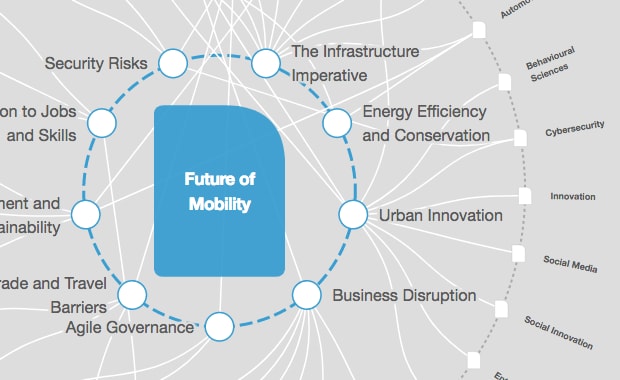
.chakra .wef-9dduvl{margin-top:16px;margin-bottom:16px;line-height:1.388;font-size:1.25rem;}@media screen and (min-width:56.5rem){.chakra .wef-9dduvl{font-size:1.125rem;}} Explore and monitor how .chakra .wef-15eoq1r{margin-top:16px;margin-bottom:16px;line-height:1.388;font-size:1.25rem;color:#F7DB5E;}@media screen and (min-width:56.5rem){.chakra .wef-15eoq1r{font-size:1.125rem;}} Mobility is affecting economies, industries and global issues

.chakra .wef-1nk5u5d{margin-top:16px;margin-bottom:16px;line-height:1.388;color:#2846F8;font-size:1.25rem;}@media screen and (min-width:56.5rem){.chakra .wef-1nk5u5d{font-size:1.125rem;}} Get involved with our crowdsourced digital platform to deliver impact at scale
Stay up to date:.
Listen to the article
- Employee travel is one of the greatest contributors to corporate carbon emissions, yet research shows most firms aren’t taking real action to make such programs any greener.
- For many companies, sustainability programmes just feel too hard to do, yet while sustainability is a commitment, it’s not as time or cost prohibitive as it used to be.
- To truly begin mitigating our carbon footprint in transport, sustainable behaviour needs to be widely adopted in organizations and deeply integrated into how we work and travel.
When we talk about why the transportation sector generates such a prominent share of greenhouse gas emissions , we tend to point to its most conspicuous villains: private jets, Big Oil, gridlock. To combat climate change, we encourage consumers to carpool and urge our legislators to invest in clean energy. These are commendable efforts, to be clear. But the discussion often leaves one of the biggest climate actors on the table.
Employee travel is one of the business world’s greatest contributors to carbon emissions. That’s due to a few factors. One, because of the prevalence of business travel by air and car, especially in countries where rail travel isn’t an option. Two, because of the CO2 footprint of first-class seats (about four times as much as economy). Three, because of the sheer number of flights taken by employees compared to your average vacationer. For example, in 2019 one global software company racked up 146,000 metric tons of CO2 emissions – akin to the amount produced by 17,500 US homes over the course of a year.
Have you read?
Business travellers are ready to take off again - if certain conditions are met - says survey, decarbonising aviation requires a transition to sustainable fuel. here’s how governments can help., covid-19 gives us a chance to design an aviation industry fit for the future, how covid-19 and omicron are affecting travel this holiday season .
When the pandemic postponed commuting and travel, total global carbon emissions dropped 7% . Of course, it’s easy to reduce your footprint when there’s no reason to leave the home office. Now, with all the buzz around the reopening of travel corridors and return to the office, the question becomes: what sustainability lessons from the global shutdown will companies take with them?
A report conducted by the Global Business Travel Association (GBTA) found that companies say that they want to make their travel programmes more sustainable post-pandemic. Over the last year and a half, they’ve been under increasing pressure from investors to report on environmental, social and governance (ESG) metrics, and from consumers wanting to use more environmentally-friendly modes of transportation.
However, the report also shows that most companies aren’t taking any real action to make their travel programmes any greener.
Business travel 2.0 misses an opportunity
According to GBTA research on travel managers in the US and Canada, about half of companies expect to focus more on the social and environmental impact of their business travel programmes post-pandemic.

Even so, only one in four organizations consider their “carbon footprint” to be a top priority. It pales in comparison to other return-to-travel concerns, such as cost control and duty of care.

On top of – and perhaps because of – these competing priorities, companies struggle to implement meaningful sustainability initiatives. While six out of 10 companies have a sustainability policy, only three out of 10 have a policy that includes business travel.

The rare programmes that do exist really only go as far as to measure the carbon footprint of travel (the most popular effort, included in 58% of policies). Less than a quarter of companies have rolled out any other initiative, including behaviour-based change. For example, 19% mandate or encourage sustainable transportation or accommodation options, and a mere 7% incentivise employees to choose these options.

Few companies (22%) take a vendor’s sustainability posture into consideration when making purchase decisions. Even if they did, it would be unlikely to influence them. The vast majority of organizations – 85% – are unwilling to pay more to work with a sustainable vendor, and just 2% are willing to pay more than a 10% price premium for more sustainable travel options.

Corporate programmes at a crossroads
One of the most striking takeaways from this research is the balance of antithetical priorities. Today’s organizations want to reduce their environmental impact. Yet they’re unwilling to invest in partnerships with greener travel providers. They have sustainability policies, but they don’t focus on the kind of company-wide behavioural changes that would have a real impact. They’re worried about cost control, yet seem to overlook the rising price of carbon, both in terms of oil prices and carbon offsets .
This contradiction arises because companies have viewed environmental factors as a separate box they can tick once they’ve hit other corporate targets. The more sustainability is compartmentalised, the easier it is to push these efforts until next quarter… or indefinitely.
Perhaps the simplest conclusion I can draw is that for many companies, sustainability programmes just feel too hard to implement. Too expensive. Too involving. With too many competing factors.
Sustainability is a commitment, to be sure, but it’s not as time or cost prohibitive as it used to be. Every organization, large and small, can introduce behavioural measures that make climate action a part of their culture. For instance, you can give your employees individual or team “carbon” budgets, pointing them to carbon-neutral transportation options once they’ve used up their allowance. You might set a rule that no one jumps on a plane for a single meeting – that kind of initiative costs zero dollars to implement, and will likely end up saving a lot of travel time and money. If you do have room in your budget, consider shifting a portion of your travel spend to green businesses and incentivising employees to patronise sustainable vendors.
As other sectors proceed to decarbonize, the aviation sector could account for a much higher share of global greenhouse gas emissions by mid-century than its 2%-3% share today.
Sustainable aviation fuels (SAF) can reduce the life-cycle carbon footprint of aviation fuel by up to 80%, but they currently make up less than 0.1% of total aviation fuel consumption. Enabling a shift from fossil fuels to SAFs will require a significant increase in production, which is a costly investment.
The Forum’s Clean Skies for Tomorrow (CST) Coalition is a global initiative driving the transition to sustainable aviation fuels as part of the aviation industry’s ambitious efforts to achieve carbon-neutral flying.
The coalition brings together government leaders, climate experts and CEOs from aviation, energy, finance and other sectors who agree on the urgent need to help the aviation industry reach net-zero carbon emissions by 2050.
The coalition aims to advance the commercial scale of viable production of sustainable low-carbon aviation fuels (bio and synthetic) for broad adoption in the industry by 2030. Initiatives include a mechanism for aggregating demand for carbon-neutral flying, a co-investment vehicle and geographically specific value-chain industry blueprints.
Learn more about the Clean Skies for Tomorrow Coalition's impact and contact us to find out how you can get involved.
Once you’ve successfully transformed sustainable behaviour into habit, then you can begin to evolve your programme into a formal policy with more advanced initiatives — such as using carbon analysis to make more strategic travel decisions.
As business trips return, we have the opportunity to be more intentional about how and why we travel. Now is the perfect moment to reassess our travel programmes for environmental impact. When the economy reopens fully, many companies will want to underline their commitment to customers with face-to-face time, and employees will be hungry to see their favourite co-workers. There’s no question that in-person meetings remain critical to company culture and the nature of good business. The question is whether we will decide to re-enter the world in a more responsible way.
On the road again
A single company deciding to launch a sustainable business travel programme won’t solve climate change. Neither will the occasional executive who switches to flying economy. But both of these examples would mark progress.
For the corporate world, “doing our part” to combat climate change will require a culture shift. To truly begin mitigating our carbon footprint on the transportation sector, sustainable behaviour needs to be widely adopted among organizations and deeply integrated into the way we work and travel. At this moment in history, with business travel at a global reset point, we have a tremendous opportunity to pave the road ahead.
Don't miss any update on this topic
Create a free account and access your personalized content collection with our latest publications and analyses.
License and Republishing
World Economic Forum articles may be republished in accordance with the Creative Commons Attribution-NonCommercial-NoDerivatives 4.0 International Public License, and in accordance with our Terms of Use.
The views expressed in this article are those of the author alone and not the World Economic Forum.
Related topics:
The agenda .chakra .wef-n7bacu{margin-top:16px;margin-bottom:16px;line-height:1.388;font-weight:400;} weekly.
A weekly update of the most important issues driving the global agenda
.chakra .wef-1dtnjt5{display:-webkit-box;display:-webkit-flex;display:-ms-flexbox;display:flex;-webkit-align-items:center;-webkit-box-align:center;-ms-flex-align:center;align-items:center;-webkit-flex-wrap:wrap;-ms-flex-wrap:wrap;flex-wrap:wrap;} More on Industries in Depth .chakra .wef-nr1rr4{display:-webkit-inline-box;display:-webkit-inline-flex;display:-ms-inline-flexbox;display:inline-flex;white-space:normal;vertical-align:middle;text-transform:uppercase;font-size:0.75rem;border-radius:0.25rem;font-weight:700;-webkit-align-items:center;-webkit-box-align:center;-ms-flex-align:center;align-items:center;line-height:1.2;-webkit-letter-spacing:1.25px;-moz-letter-spacing:1.25px;-ms-letter-spacing:1.25px;letter-spacing:1.25px;background:none;padding:0px;color:#B3B3B3;-webkit-box-decoration-break:clone;box-decoration-break:clone;-webkit-box-decoration-break:clone;}@media screen and (min-width:37.5rem){.chakra .wef-nr1rr4{font-size:0.875rem;}}@media screen and (min-width:56.5rem){.chakra .wef-nr1rr4{font-size:1rem;}} See all

Robot rock stars, pocket forests, and the battle for chips - Forum podcasts you should hear this month
Robin Pomeroy and Linda Lacina
April 29, 2024

Agritech: Shaping Agriculture in Emerging Economies, Today and Tomorrow

Confused about AI? Here are the podcasts you need on artificial intelligence
Robin Pomeroy
April 25, 2024

Which technologies will enable a cleaner steel industry?
Daniel Boero Vargas and Mandy Chan

Industry government collaboration on agritech can empower global agriculture
Abhay Pareek and Drishti Kumar
April 23, 2024

Nearly 15% of the seafood we produce each year is wasted. Here’s what needs to happen
Charlotte Edmond
April 11, 2024

Salesforce is closed for new business in your area.

- Travel management Toggle submenu Egencia Overview Travel management solutions Amex GBT Neo1 Amex GBT Neo Amex GBT Select Amex GBT Ovation Manage your corporate travel program Corporate travel policy Travel risk management Travel expense management Reporting Travel management consulting Industry Solutions Legal Transportation & Logistics
Egencia reviews

See how Egencia works

- Customer center Toggle submenu Travelers Help center Business traveler center Download the app Travel arrangers Help center Travel arranger center Training resources Travel managers Connect community Product updates Customer training
- Watch a demo
- Request a demo
- About Egencia
Sustainability in Business Travel & Corporate Travel Policy
How to integrate sustainability into your corporate travel program.

To help our customers improve the sustainability of their corporate travel program, Amex GBT Egencia (Egencia TM ) provides easy ways to calculate, track, and report on carbon emissions and inform travelers. Sustainable travel is a team effort and requires travel managers and travelers themselves to work together.
We have recently launched two new flight travel policies that will provide additional support for companies with carbon emission goals. These policies will explicitly guide travelers towards more carbon efficient travel options whenever possible. You may already have some internal guidance on more sustainable travel behavior but to make it even easier for travelers to follow these guidelines, we’ve also integrated it into Egencia’s platform.
Guiding travelers with travel policy
Travel policy and approval are the backbone of a corporate travel program. They are widely employed by companies of all sizes and are standard practice in corporate travel. Travel policies offer useful tools to guide travelers towards the right kind of travel behavior for your travel program and help you reach your company goals.
They can be tailored to different regions and traveler needs and are communicated to them by messaging along the shopping path. Travel policies for flights, rail, car and hotel can provide many benefits such as cost savings, travel efficiency, and can help you protect your travelers when combined with duty of care features.
More specifically, flight travel policies are used by Egencia customers to:
- Set preferences for cabin class
- Restrict destinations for security reasons
- Set traveler limits and reasonable flight durations to promote traveler wellbeing.
- Set preferred airlines, where they may have negotiated rates or your company classify them as more eco-friendly.

More sustainable travel options
Our two new flight travel policies will enable you to be more explicit with your travelers about eco-friendlier choices when searching for flights:
- Carbon efficient flights: guides travelers to pick flights that emit less carbon emissions than average for this specific route and within the same cabin class. The carbon efficiency of the flights will also be visible to the traveler to help them make a more informed decision.
- Flights with train alternatives: points the traveler to train options where possible, since they emit far less carbon emissions. Travel managers will need to set a trip length criteria for the alternative rail trip, i.e. it must be less than a certain number of hours to be considered valid.
Whenever relevant, travelers will see an ‘out of policy flag with a popup message that explains the out of policy reason. These flight travel policy settings are available for travel managers under flight policy and alongside many other travel policy configuration options for car, rail, and hotel.
These policies are in addition to our recently launched premium sustainability features , which already includes tailored carbon emission calculations for air, new carbon compensation options, and traveler information and sorting of flights according to carbon emissions.
Where can I find out more?
If you want to learn more about these features, request a demo today. Already a customer? Speak to your account manager.
Looking for better business travel solutions? Get in touch with us.
Recommended for you.

- English (UK)
- English (CA)
- Deutsch (DE)
- Deutsch (CH)
Why sustainability should be part of your business travel policy
?w=50&)
The time to act on sustainability is now
Traveling responsibly can equal savings.
?)
Failure to act will affect talent acquisition
Sustainability is fast becoming government policy, so what can companies do to implement a change towards traveling sustainably, 1. streamline carbon emissions reporting.
?)
2. Switch to greener transport options
3. opt for socially responsible carbon offsetting.
?)
4. Craft a company culture with sustainability at its core
- Choosing e-tickets.
- Changing towels less frequently in hotel rooms.
- Avoid using miniature hotel toiletries and opt for filling reusable plastic bottles with your favorite products instead.
- Swapping single-use plastics, like plastic bags and water bottles for reusable products.
- Continue to recycle and reuse while on the road.
- Including allowances for electric vehicles in travel policies (feel free to use our sample company travel policy for employees to improve your own policy).
- Supporting local communities and local economies by buying 0 km produce.
- Opt for eco-hotels where possible but be wary of greenwashing.
The key to sustainability is traveling smarter
?)
Start offsetting your business travel carbon emission today!
Did you find this article useful.
?)
Make business travel simpler. Forever.
- See our platform in action . Trusted by thousands of companies worldwide, TravelPerk makes business travel simpler to manage with more flexibility, full control of spending with easy reporting, and options to offset your carbon footprint.
- Find hundreds of resources on all things business travel, from tips on traveling more sustainably, to advice on setting up a business travel policy, and managing your expenses. Our latest e-books and blog posts have you covered.
- Never miss another update. Stay in touch with us on social for the latest product releases, upcoming events, and articles fresh off the press.
?)
Customer spotlight: Mambu on running a responsible business
?)
Top 10 sustainable hotels & chains for business travelers
?)
Biodiversity & business: why it matters
- Business Travel Management
- Offset Carbon Footprint
- Flexible travel
- Travelperk Sustainability Policy
- Corporate Travel Resources
- Corporate Travel Glossary
- For Travel Managers
- For Finance Teams
- For Travelers
- Thoughts from TravelPerk
- Careers Hiring
- User Reviews
- Integrations
- Privacy Center
- Help Center
- Privacy Policy
- Cookies Policy
- Modern Slavery Act | Statement
- Supplier Code of Conduct
Middle East and Africa
Asia Pacific
- Try for free
- Concur Expense
- Company Bill Statements
- Bank Card Feeds
- Concur Detect
- Concur Benefits Assurance
- Concur Event Management
Concur Request
- Concur Tax Assurance
- Intelligent Audit
- All products
Concur Travel
- Concur TripLink
- Concur Invoice
- Payment providers
- Payment solutions
- Purchase Request
- Three-Way Match
- Consultative Intelligence
- Data Delivery Service
Intelligence
- Concur Advanced Care
- Concur Essential Care
- Concur Select Care
- Concur User Assistant
- Managed Rate Administration
- User Support Desk
- Learn about integrations
- Invoice integrations
- Concur Compleat
- TMC solutions
- Traveler self-service
- TravPay Hotel
- Trip Approval
- Sustainable travel
- Business expansion
- Compliance and risk
- Control company costs
- Duty of care
- Employee experience
- Intelligent Spend Management
- Travel and expense
- Travel in China
- Energy & utilities
- Financial services
- Government contracting
- Legal/professional services
- Life sciences
- Manufacturing
- Non profits
- Oil, mine, and gas
- State & local governments
- Technology companies
- Enterprise finance leader
- Small business finance leader
- Travel manager
- Getting started
- Premium Assistant
- Service Assistant
- All solutions
- Intelligent spend management
- Travel and Expense
- REQUEST PRICING
- About SAP Concur
- CONTACT SALES
- Resource center
- Case studies
- Customer experience
- Mobile apps
- SAP Concur Community
- Expense demo
- Invoice demo
Concur Drupal Menu - Mobile
Sustainable business travel, build sustainability into your travel program and equip employees with tools to achieve sustainability goals., make sustainability a key part of your overall business strategy.

For years, sustainability was topic that many organizations discussed, but few did much about. Today, discussion and good intentions are not enough. Get the eBook and find out what organizations like yours are doing to make sustainable business travel and policies central to their business strategies.
Download the eBook
Build sustainability and an eco-strategy into your travel policy

Sustainability isn’t just a corporate buzzword any longer. Today, it’s a must-have consideration for every business. Download the free sustainability policy template and see what you can do to shape your organization’s travel sustainability strategy and operationalize it within your travel policy.
Get the free template
The importance of sustainability to business travelers
As business travel resumes, sustainability is top of mind for many travelers. From prioritizing fuel-efficient flights to electric ground transportation to opting for virtual meetings, travelers are rethinking travel habits and looking at travel through a sustainability lens. A recent report found that:
- 97% of corporate travelers would increase journey time if it significantly reduced environmental impact
- 80% of business travelers are more inclined to work for an organization with a sustainability policy
- 69% of travel managers have updated travel policies or guidelines to have a greater focus on sustainability
Tips for sustainable travel
How sustainable is your organization's travel program?
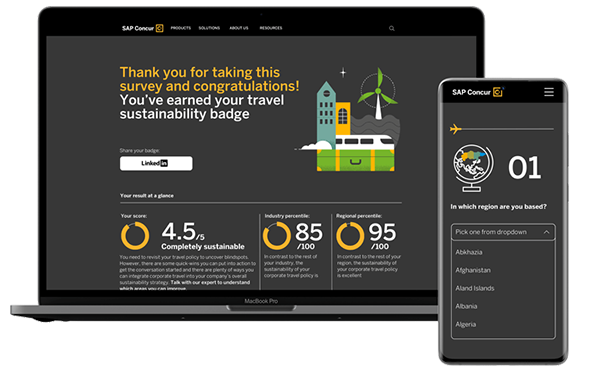
Before you can build sustainability into your travel program, you need to know where your business is today. That’s why we’ve created a quiz to help you assess your corporate travel sustainability and see how your business compares to others in your industry and region.
Take the quiz
See how these SAP Concur solutions can increase sustainability for your business

Highlight sustainable partners, communicate sustainability initiatives, and guide employees toward greener travel before, during, and after their trip.

Get data insights into carbon emissions, top destinations, green suppliers, traveler spending behaviors, and more.

Show employees their individual travel footprint and give them practical options for offsetting their impact.

Configure rules to meet unique travel needs and make sure sustainability is built into your travel and expense spending policies.
- SERVICE STATUS
- REQUEST A QUOTE
- VISIT SAP.COM
- Terms of Use
You are using an outdated browser. Please upgrade your browser to improve your experience.
Please enable JavaScript in order to view this site properly.
- About Shoosmiths
- Impact report FY23
- Innovation & AI
- Recognition
- Senior leadership team
- The Shoosmiths client experience
- Business services careers
- Emerging talent
- Legal professionals
- Our responsibility
- Corporate responsibility
- Diversity, equity & inclusion
- Social mobility at Shoosmiths
- The Shoosmiths Foundation
- Media contacts
- Client login
- Pay my bill
Suggested searches
- Back arrow About
- $name: overview page
- Innovation & AI
- Back arrow Careers
- Back arrow Our responsibility
- Diversity, equity & inclusion
- Back arrow Client login
Shoosmiths sustainable travel policy
Back to corporate responsibility
Shoosmiths is committed to a net zero future with Science Based Target initiative (SBTi) validated targets to reach net-zero GHG emissions across the value chain by FY2040.
Emissions related to business travel and commute to work form part of our carbon footprint and our strategy to minimise business and commute to work emissions and reduce associated environmental impacts is based on:
- implementing, maintaining, monitoring and communicating this policy across the firm and making it available to all interested parties;
- undertaking agile working practices, underpinned by our working principles, giving colleagues even more choice to make their own decisions on where and when they work;
- ensuring appropriate systems, technology and support are in place that make it easy for employees to manage their working day by minimising the need for business travel;
- operation of a centralised online booking platform for all domestic and overseas travel, facilitating the capture of management information to track progress against this policy;
- provision of guidelines on how to travel in a safe, cost effective and sustainable way including challenging the need for travel, encouraging a one day a week no travel approach and adopting a travel hierarchy approach. An internal carbon levy is applied for all business flight bookings, colleagues have the option to upgrade to first class rail travel for rail journeys of two hours or more and the use of public transport is encouraged for city centre locations;
- offering the UK ‘Cycle to Work’ scheme to employees which we have supported since 2007;
- offering an electric and low emission car salary sacrifice scheme for employees;
- exploring further options to incentivise employees to reduce travel related emissions;
- supporting our people to drive more safely and efficiently through e-learning;
- measuring and reporting business travel and commute to work emissions as part of our annual carbon footprint and target progress reporting;
- determining additional data for reporting, and
- sharing best practice internally and externally.
Date : 3 July 2023 Signed : David Jackson, Chief Executive
Download icon Download a copy
Download a copy of our sustainable travel policy below.
Share this page

Passing Thru Travel
12 Best Practices for Sustainable Travel in 2024 – How to Travel with Minimal Environmental Impact
Posted: February 14, 2024 | Last updated: February 14, 2024

In an era where climate change and environmental conservation are paramount, sustainable travel has become more than a buzzword—it’s a necessary shift in how we explore the world. Sustainable travel means being mindful of our environmental impact while experiencing new cultures and destinations. This guide delves into the best practices for eco-friendly travel, ensuring your adventures contribute positively to the planet and local communities.
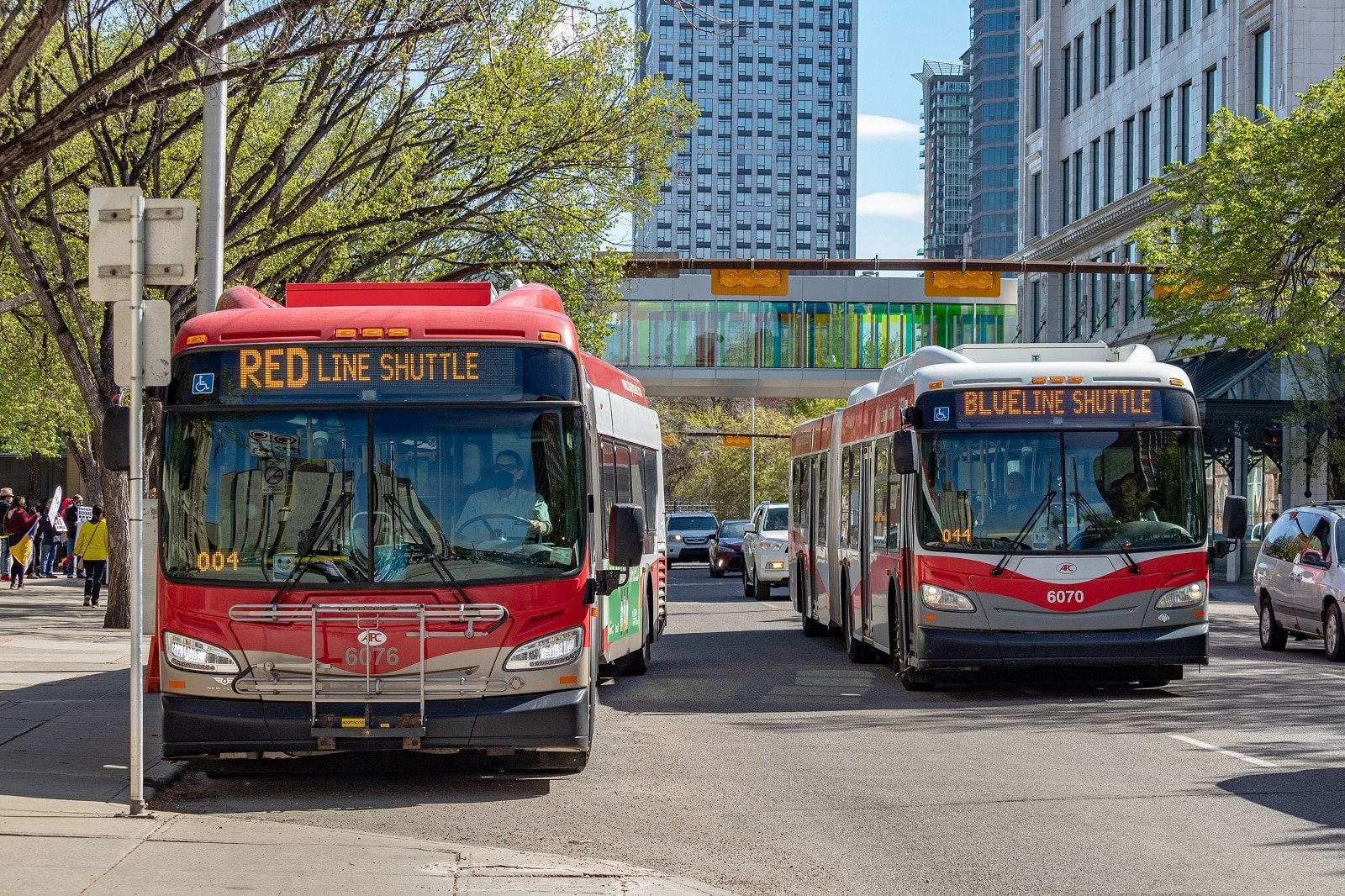
Choose Eco-Friendly Transportation
When planning your travels, opting for transportation methods that minimize carbon emissions is crucial in sustainable travel. For shorter distances, trains and buses are significantly more eco-friendly than airplanes, emitting far less carbon per passenger. This choice reduces your environmental impact and often provides a more scenic and immersive travel experience.
If air travel is unavoidable, particularly for longer distances, look for airlines that offer carbon offset programs. These programs allow you to compensate for the emissions from your flight by funding environmental projects such as reforestation or renewable energy initiatives. By making these conscious choices in your mode of transportation, you play a direct role in reducing the carbon footprint of your travels, contributing to the broader effort of environmental conservation.
Insider’s Tip: Rent electric or hybrid vehicles for road trips to reduce your carbon footprint.

Support Local Businesses
Engaging with local economies is a key aspect of sustainable travel and a practice that directly benefits the communities you visit. By choosing locally-owned accommodations, dining at local restaurants, and selecting local tour operators, you’re not only immersing yourself in the authentic culture of the destination but also ensuring that your spending contributes directly to the local economy. This approach supports small businesses and helps to distribute tourism dollars more evenly, fostering community development.
Moreover, local establishments often have a smaller carbon footprint than larger international chains. They’re more likely to use local resources, employ residents, and preserve traditional practices. By making these choices, you help sustain the local culture and environment while reducing the overall emissions associated with your travel. This way, your journey becomes more meaningful, both for you and for the people whose home you’re visiting.
Insider’s Tip: Seek out accommodations that are known for their sustainable practices and community involvement.
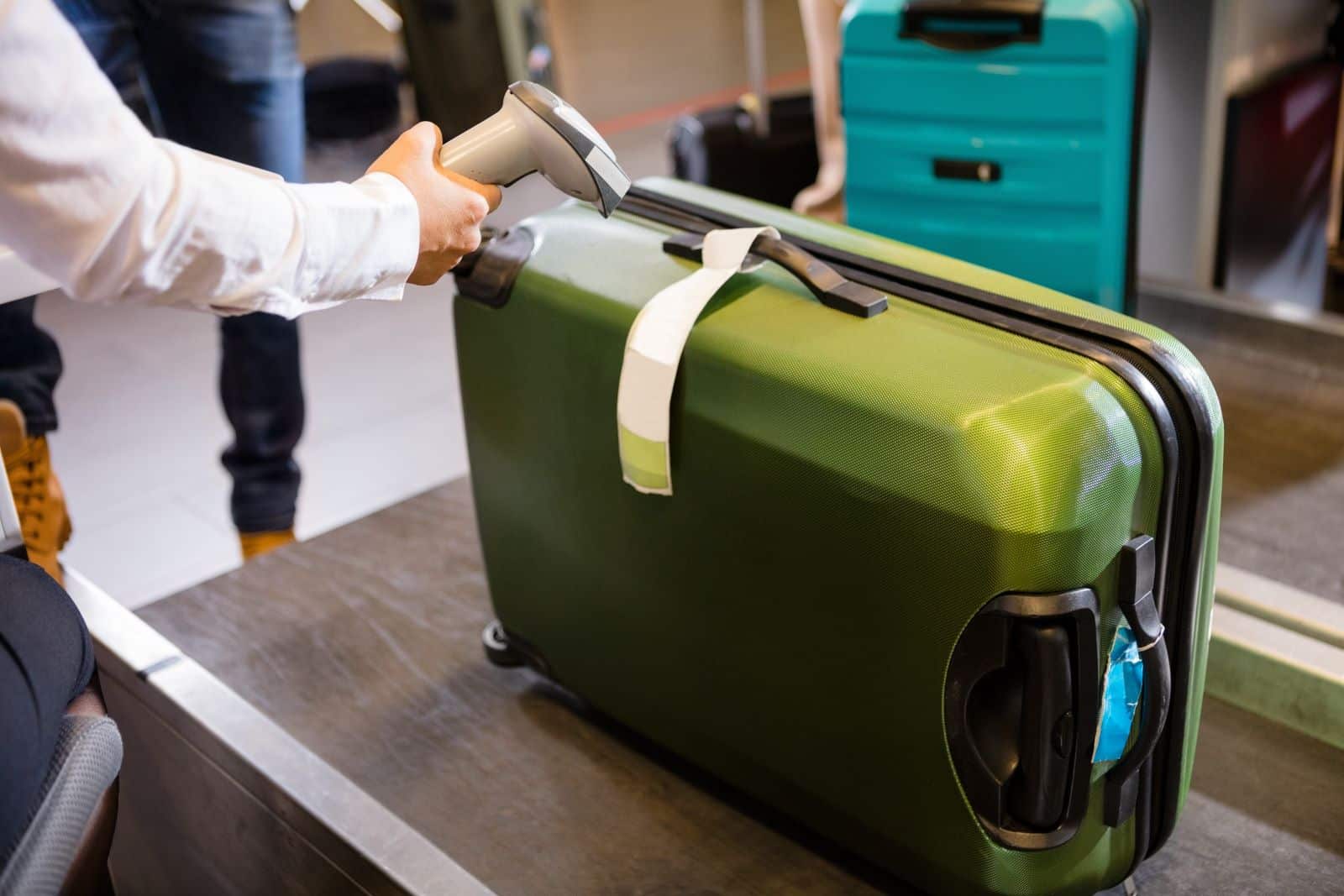
Pack Light and Eco-Friendly
Packing light is an effective way to contribute to more sustainable travel. By reducing the weight of your luggage, you indirectly help lower the fuel consumption of flights, decreasing the carbon emissions associated with air travel. Lighter planes mean less fuel burned, making a small but meaningful environmental impact. Additionally, consider incorporating eco-friendly travel products into your packing list. Choose biodegradable toiletries that minimize your plastic waste and reduce the environmental impact of your personal care products. Carrying a reusable water bottle cuts down on single-use plastics and keeps you hydrated without adding to plastic pollution.
Furthermore, solar-powered chargers are a green alternative to traditional charging methods, harnessing renewable energy to keep your devices powered up. By making thoughtful choices in what and how you pack, you protect the environment while still enjoying the conveniences and necessities of modern travel.
Insider’s Tip: Choose a backpack or suitcase made from recycled materials for an extra sustainable choice.

Respect Wildlife and Natural Habitats
In natural settings where wildlife is present, it’s crucial to maintain a respectful distance. This ensures not only your safety but also the well-being of the animals. Interfering with wildlife can disrupt their natural behaviors and habitats. Avoid attractions or activities that exploit animals for entertainment, as these often contribute to animal stress and harm. Instead, opt for wildlife viewing experiences that promote conservation and ethical practices.
Additionally, when exploring natural areas, stay on marked trails. Straying off the path can destroy habitat and negatively impact the local flora and fauna. By sticking to designated trails, you help preserve the natural environment and ensure it remains a wildlife sanctuary. Your mindful actions contribute to the conservation of these ecosystems, allowing future generations to enjoy and appreciate the natural world just as you do.
Insider’s Tip: Choose wildlife tours led by reputable guides who prioritize animal welfare and conservation. Do not ride elephants!

Reduce, Reuse, Recycle
Adhering to the three Rs of sustainability – reduce, reuse, and recycle – is fundamental in minimizing your environmental impact during travel. Reducing waste starts with making conscious decisions about what you consume and how. Opt for products with minimal packaging, and whenever possible, choose alternatives to single-use plastics, like carrying a reusable water bottle, coffee cup, and shopping bags. Reusing items not only cuts down on waste but also saves resources. For instance, refill your water bottle, use the same shopping bag, and choose accommodations that offer bulk toiletry dispensers rather than single-use containers.
Recycling is the last step, but it’s equally important. Ensure you’re disposing of waste properly by separating recyclables from trash. Consider carrying recyclables in areas where recycling facilities might not be readily available until you find a proper disposal point. By following these practices, you help reduce the amount of waste that ends up in landfills or, worse, natural habitats and oceans, thereby playing a part in preserving the environment while traveling.
Insider’s Tip: Carry a ‘zero-waste kit’ with reusable cutlery, a shopping bag, and a coffee cup.

Conserve Water and Energy
Being conscious of water and energy usage is a crucial aspect of sustainable travel. Simple, everyday actions can collectively make a significant impact on conserving resources. Remember to turn off lights, air conditioning, and electronic devices when not in use or leaving your accommodation. This not only saves energy but also reduces unnecessary electricity consumption. Consider taking shorter showers, a practical way to reduce water usage, and reuse towels instead of requesting new ones daily.
Many hotels and accommodations now encourage this practice as part of their environmental policies. By being mindful of your water and energy consumption, you reduce your travels’ environmental footprint. These small but meaningful actions are steps towards more responsible and sustainable tourism, ensuring that the natural and cultural environments you visit can be preserved and enjoyed for years to come.
Insider’s Tip: Stay in accommodations that utilize renewable energy sources or have water-saving systems in place.

Educate Yourself and Others
As a responsible traveler, it’s important to educate yourself about the environmental challenges faced by the destinations you visit. This knowledge enhances your understanding of the local context. It enables you to make more informed decisions about how to travel responsibly. Awareness of these issues allows you to adjust your behavior accordingly, such as using water sparingly in drought-prone areas or avoiding products contributing to habitat loss, whether it’s water scarcity, pollution, or habitat destruction.
Furthermore, sharing your sustainable travel practices with fellow travelers is a powerful way to spread awareness and encourage others to adopt similar habits. Engaging in conversations about sustainability, sharing tips on eco-friendly practices, or even leading by example can inspire those around you to be more environmentally conscious. This collective effort can create a significant positive impact, helping to preserve the beauty and integrity of the places you visit.
Insider’s Tip: Participate in local environmental initiatives or workshops if available.

Offset Your Carbon Footprint
Considering the carbon emissions from your travel is an essential part of sustainable tourism. While traveling without leaving a carbon footprint is challenging, you can mitigate this impact by investing in carbon offsetting initiatives. These programs typically involve contributing to projects that reduce carbon emissions elsewhere, like renewable energy projects which replace fossil fuels, or reforestation efforts that naturally absorb carbon dioxide from the atmosphere.
When you choose to offset your emissions, you’re taking responsibility for the environmental impact of your travel. Many airlines offer carbon offset programs at the point of purchase. However, you can also independently invest in verified projects around the world. By offsetting your carbon emissions, you’re contributing to global efforts against climate change, ensuring that your travel positively impacts the environment.
Insider’s Tip: Use online carbon calculators to estimate travel emissions and find suitable offsetting projects.

Embrace Slow Travel
Embracing slow travel is about prioritizing quality over quantity in your journeys. Rather than rushing to tick off a long list of destinations, this approach encourages you to spend more time in fewer places. Doing so allows you to delve deeper into the local culture, gaining a richer and more authentic understanding of the places you visit. This immersive experience often leads to more meaningful connections with local people, traditions, and customs.
Additionally, slow travel significantly reduces the environmental impact associated with frequent travel, such as lower carbon emissions from less frequent flights or drives. This more relaxed pace of travel benefits the environment. It enhances your overall experience, allowing for a more thoughtful and fulfilling exploration of each destination.
Insider’s Tip: Choose a single destination or region and explore it thoroughly, using local transportation and enjoying off-the-beaten-path experiences.

Participate in Sustainable Activities
Engaging in low-impact activities is a key aspect of sustainable travel. Opting for experiences like hiking, biking, or kayaking allows you to enjoy and appreciate the natural beauty of your destination without contributing to pollution or resource depletion. These activities minimize your environmental footprint and provide a more intimate connection with nature. When selecting these experiences, consider those that offer educational insights into the local ecosystem or culture.
For example, guided nature walks can teach you about native wildlife and plant species, while cultural tours led by local experts can deepen your understanding of the area’s history and traditions. By choosing environmentally friendly and informative activities, you enrich your travel experience and support sustainable tourism practices that prioritize the health of our planet and its diverse ecosystems.
Insider’s Tip: Join guided eco-tours that focus on environmental education and conservation efforts. These tours provide insights into local sustainability practices and often contribute directly to conservation efforts.

Eat Locally Sourced Food
Eating locally sourced food while traveling is an opportunity to enjoy authentic flavors and dishes and an effective way to reduce your environmental impact. Food that is locally sourced hasn’t undergone long-distance transportation, which is a major contributor to carbon emissions. By opting for meals made with local ingredients, you reduce the demand for transported goods and your carbon footprint.
Furthermore, eating locally supports farmers and producers, contributing to the local economy and community. This approach allows you to experience the region’s culinary culture more intimately while supporting sustainable practices that benefit the environment and local livelihoods. It’s a simple yet impactful way to make your travel more environmentally friendly and culturally enriching.
Insider’s Tip: Visit local markets or farm-to-table restaurants to enjoy fresh, regional produce. This helps reduce transportation emissions associated with food and offers the chance to experience the region’s culinary culture more authentically.

Stay in Sustainable Accommodation
Choosing accommodations committed to sustainability is a significant step in responsible travel. Nowadays, many hotels and hostels are adopting eco-friendly practices, and by selecting these establishments, you’re actively supporting and encouraging the growth of green tourism. Look for places that utilize solar energy, which reduces reliance on fossil fuels, or those with effective water conservation measures, essential in areas facing water scarcity.
Recycling programs, use of eco-friendly materials, and efforts to reduce food waste are other green initiatives to consider. By opting to stay in such accommodations, you not only lessen your environmental impact but also help to drive demand for sustainable practices on the broader tourism industry. This consumer choice sends a strong message to the market about the importance of environmental responsibility, influencing more establishments to adopt similar practices.
Insider’s Tip: Look for eco-certifications or awards when booking accommodations, which often indicate a genuine commitment to environmental responsibility.

The Bottom Line
Sustainable travel is more than just being a responsible tourist; it’s about being a conscious global citizen and making choices that reduce our environmental impact while enhancing the well-being of local communities. By adopting these best practices, you become part of a growing movement that values environmental preservation, cultural respect, and the vitality of the communities and environments you visit.
This thoughtful approach to travel ensures that your experiences are enriching for you and beneficial for the planet. Choosing eco-friendly transportation, supporting local businesses, respecting natural habitats, and making mindful food and accommodation choices contribute to a healthier planet. Sustainable travel isn’t just about reducing harm; it’s about actively contributing to positive change, creating a ripple effect beyond your individual journey.
As you explore the world, remember that every small action counts towards preserving the world’s beauty and diversity for future generations to explore and enjoy. Your choices can lead to meaningful experiences that align with sustainability principles, ensuring that the wonders remain for future generations to appreciate.
More Articles Like This…
Barcelona: Discover the Top 10 Beach Clubs
2024 Global City Travel Guide – Your Passport to the World’s Top Destination Cities
Exploring Khao Yai 2024 – A Hidden Gem of Thailand
The post 12 Best Practices for Sustainable Travel in 2024 – How to Travel with Minimal Environmental Impact republished on Passing Thru with permission from The Green Voyage .
Featured Image Credit: Shutterstock / Day2505.
For transparency, this content was partly developed with AI assistance and carefully curated by an experienced editor to be informative and ensure accuracy.
More for You
Nikki Glaser, 'winner' of Tom Brady's Netflix roast, fires back at NFL star's regrets
NATO makes strong statement on Ukraine
17 movie and TV lines actors refused to say on screen: ‘I’m a self-respecting human being, I can’t do this’
12 Classic American Muscle Cars Worth Every Penny
George Stephanopoulos defiant over Trump's defamation suit: 'I'm not going to be cowed'
Parents who raise successful kids use these 4 'positive' phrases, says parenting expert
13 Annoying Habits That Could Be Sabotaging Your Friendships
4 Things You Should Never Cook in Cast Iron
I live in a tiny home mansion and fell in love with it — it's the only way I could afford to live in California
Dedication Beyond Limits: 25 Actors Who Went to Extremes for Their Roles
20 Things They Don’t Teach in High School but Should
Everything You Need To Know About The Factory V-8 Mazda MX-5 Miata
Scientists Say Our Universe Might Be a Hall of Mirrors
Radio-Wave Weapon Could Be 'Game Changer' Against Drones
Mike Tyson goes off on reporter who called him a 'Gimmick' in Jake Paul fight presser
Look inside the McNeal Mansion, an abandoned 10,000-square-foot home from the 1800s that nature is reclaiming
Diana Taurasi is Trending Again After Caitlin Clark's Second WNBA Game
Tom Brady admits officials made wrong call in 2017 AFC Championship Game
McDonald’s $5 menu is out – and people are not happy
11 of The Best Mustangs of All Time
- Business Travel
- Home Inspiration
- Sustainable Living
- Wellbeing & Wellness
- Area Guides
- Whitepapers

8 Corporate Flight Booking Benefits

Corporate flight booking offers an array of benefits that can significantly enhance the efficiency and convenience of business travel. By centralising the booking process, companies gain better control over travel expenses and compliance with travel policies.
This approach allows travel managers to identify cost-saving opportunities more effectively. Moreover, the advantages extend beyond just financial savings, as employees experience increased convenience with streamlined travel arrangements, which can improve their overall trip experience and productivity.
One of the major corporate flight booking benefits is how it solves the manual way of handling traveller safety and support.
Additionally, the data gleaned from centralised booking systems provides valuable insights into travel patterns and behaviour, aiding companies in making informed decisions regarding their travel strategies.
Key Takeaways
- Streamlined booking processes lead to financial savings and policy adherence.
- Employee convenience and productivity are enhanced through managed travel arrangements.
- Centralised systems provide crucial support and data for strategic decision-making.
1. Cost Savings
When companies leverage corporate flight discounts, they’re effectively curbing travel expenses. Airlines typically offer incentive-based schemes, like tiered packages including bronze, silver, or gold. These packages come with escalating discounts , with the higher tiers granting more substantial savings.
Corporate flight discounts play a significant role in reducing a company’s travel budget. Frequent flying employees often unlock even greater savings. Airlines find these corporate deals mutually beneficial as they ensure customer loyalty and predictable revenue from regular business travellers.
Here’s how cost savings manifest:
- Bulk buying: Negotiating deals for frequent travel can bring down the cost per ticket.
- Customised deals: Tailoring packages based on travel frequency and destinations can yield long-term savings.
Benefits of Corporate Flight Discounts
Furthermore, corporate deals often include value-added services that bring indirect cost benefits. These could encompass free seat selection, priority check-in, and faster boarding – all contributing to an efficient and cost-effective travel experience. Through strategic corporate flight bookings, companies can profit from both direct fare reductions and ancillary expense minimisation.
2. Policy Compliance Management
Effective policy compliance management in corporate flight booking helps companies oversee pre-trip approvals and monitor travel-related expenditures more efficiently, ensuring policies are adhered to and costs stay within budget.
Pre-Trip Approval Process
The pre-trip approval process is a crucial first step in managing corporate travel compliance. This structured protocol ensures that any travel booked aligns with the company’s policies and budgetary constraints. For instance, businesses might use an automated system where travellers submit trip details and await confirmation. The process might specify that bookings comply with preferred suppliers or fare conditions to make sure everybody within the company follows it.
Spend Tracking and Analysis
Spend tracking and analysis are pivotal for observing travel policy compliance and identifying savings opportunities . Companies can make use of sophisticated software to monitor travel spending in real-time. This includes:
- Fare Auditing : Ensuring travellers secure the best available fares within policy parameters.
- Expense Reporting : Analysing reports to ensure expenses align with policy, flagging outliers for review.
- Vendor Negotiations : Leveraging spend data to negotiate with preferred vendors , securing the most advantageous rates and benefits.
This targeted analysis enables companies to refine their travel policies continually and to reinforce employee compliance.
3. Improved Employee Convenience
Corporate flight booking systems significantly enhance the travel experience for employees by streamlining the entire process. They focus on reducing travel-related stress and increasing efficiency during business trips.
Streamlined Booking Process
Corporate flight booking tools offer a simplified booking interface , enabling employees to book flights with ease. Automation features ensure that travel policies are adhered to, while also providing the flexibility to choose from a range of flight options that best suit the business traveller’s schedule.
Centralised Itinerary Management
Managing itineraries centrally offers a cohesive overview of travel plans. The system consolidates all information, giving employees access to their flight details at one location. It’s also useful for managers who oversee travel arrangements, ensuring that all bookings align with business itineraries and preferences.
4. Traveller Safety and Support
When it comes to corporate travel, the well-being of employees is paramount. Companies must ensure that they provide comprehensive safety and support services for their travelling staff.
24/7 Travel Assistance
In the event of any travel disruptions or emergencies, companies have set up systems for around-the-clock support . This means that no matter the time zone or location, an employee can access immediate help. Services like Trip.com provide customer support that operates 24/7, ensuring that travellers can receive assistance whenever needed.
Proactive Risk Management
Companies are taking a proactive approach to managing the risks associated with business travel . This includes regular updates on potential travel disruptions and threats. By staying ahead of risks, companies using platforms such as Clooper can ensure that travellers are aware of any issues that may affect their safety, allowing for swift action to be taken when necessary.
5. Data Insights and Reporting
Harnessing accurate data insights and reporting mechanisms provides corporations with the leverage to optimise their travel spending and forecast future travel expenditures more effectively.
Real-Time Travel Data
In the context of corporate travel, real-time data is indispensable. It enables travel managers to track movements as they happen, thus providing immediate insights. One distinct advantage is the ability to address travel disruptions swiftly , minimising downtime and ensuring employees’ well-being.
Customised Reporting
Tailored customised reporting serves as a powerful tool in the analysis of travel expenses and behaviours. Companies rely on this for detailed breakdowns of spending, which can be fine-tuned to individual preferences. A management software’s capability to produce customisable reports means that businesses can focus on specific metrics that matter most to their strategies.
6. Supplier Negotiations
Corporate flight booking often involves negotiations with suppliers to secure cost-effective travel options. These negotiations can result in significant savings and benefits for companies that engage in frequent business travel.
Leveraged Buying Power
Companies harness their leveraged buying power to negotiate better rates with airlines. They aggregate their travel needs to present a substantial volume of business to their airline partners. This strategy can lead to decreased costs per flight, as suppliers are often willing to offer reductions in exchange for the assurance of a steady stream of business.
Exclusive Corporate Deals
Through supplier negotiations , companies can access exclusive corporate deals that are not available to the general public. These deals might include benefits such as flexible ticketing options , additional frequent flyer perks , or waived fees for changes and cancellations. Negotiating such deals requires a deep understanding of both the company’s specific travel needs and the supplier’s offerings.
Companies that successfully engage in supplier negotiations not only enjoy reduced fares but also gain customised travel solutions designed for their unique requirements.
7. Integration With Company Policy
Incorporating a corporate travel booking system that aligns with company policy not only ensures compliance but also streamlines the travel management process. These systems offer customisable options and robust tracking capabilities to ease the complexities often seen in business travel planning.
- Customisable Travel Options
Corporate travel booking platforms often feature customisable travel options to meet the diverse needs of a company. Whether it’s specifying preferred airlines, setting a limit on allowable hotel expenses, or defining class of travel, these platforms can adjust to various policies. They provide the flexibility to create a travel program that suits both the company’s budget and the travellers’ needs .
- Employee Compliance Tracking
A key benefit of these platforms is the ability to track employee compliance with company travel policies. This is often achieved through detailed reporting tools that monitor booking behaviours and expenses, flagging any non-compliant transactions . By ensuring employees stay within policy, companies can maintain budget control and minimise financial risk .
8. Sustainability Efforts
Companies are increasingly adopting sustainable practices in corporate travel. They seek to balance the need for business flights with environmental responsibility, which is evident in the growing availability of eco-friendly travel options and intricate carbon footprint monitoring systems.
Eco-Friendly Travel Options
Businesses have access to a variety of eco-friendly travel options to reduce their environmental impact. Booking flights with airlines that use modern, fuel-efficient fleets is one such method. Companies like Ryanair emphasise their sustainable approach by operating 89 bases across Europe with a daily flight service, underlining their commitment to efficiency.
Additionally, selecting direct flights wherever possible and prioritising economy class over business class can also contribute to lower carbon emissions per passenger.
Carbon Footprint Monitoring
Monitoring and managing the carbon footprint of corporate travel is crucial. Several airlines and travel management companies offer systems allowing businesses to track and report their emissions. For example, initiatives recognised by the Carbon Disclosure Project provide ratings such as B scores for transparency and efforts in sustainability.
Companies can leverage these tools to make data-driven decisions that align with their sustainability goals and reporting requirements, like those outlined in the Corporate Sustainability Reporting Directive (CSRD).
What advantages do companies get when booking flight tickets in bulk?
Companies often enjoy substantial savings when purchasing flight tickets in bulk. They may also gain access to flexible ticketing options and dedicated support services.
What are the cancellation charges for corporate flight bookings?
Cancellation charges for corporate flight bookings can vary widely and are typically detailed in the corporate fare agreement. Occasions exist where corporate agreements allow more lenient cancellation terms.
How do corporate fares differ from standard fares?
Corporate fares frequently offer additional flexibility, such as last-minute changes or cancellations, along with more favourable conditions for frequent amendments.
What constitutes a corporate ticket in airline terminology?
A corporate ticket is usually issued under specific corporate fare agreements that include negotiated benefits like price discounts and more flexible booking conditions tailored to business requirements.
Are there specific discounts available for corporate travel with airlines?
Airlines often provide exclusive discounts and perks for corporate clients, which can include price reductions, upgrades, and additional loyalty points.
How does corporate travel booking streamline the process for businesses?
Corporate travel booking platforms can centralise the booking process, simplifying management, and providing analytical tools for tracking expenses and ensuring policy compliance.
Read more Tips articles

Top 7 London Safest Areas in 2024
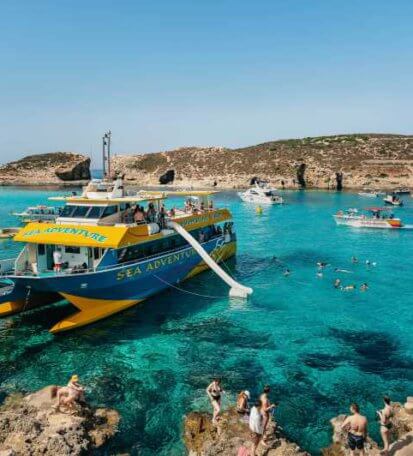
Comino Island Malta Best Eco-Friendly Travel Tips

7 Reasons Why You Need Corporate Travel Agencies

Using Travel Agents vs Self-Booking: Which is Better?
Chinese (CN) / 简体中文
Chinese (HK) / 繁體中文(香港)
Chinese (TW) / 繁體中文(台灣)
Japanese / 日本語
Korean / 한국어(대한민국)

Agoda launches the 3rd edition Eco Deals Program at the ASEAN Tourism – Forum
Agoda, the global digital travel platform, announced at the ASEAN Tourism Forum (ATF) that it has broadened its collaboration with World Wide Fund for Nature (WWF), expanding its Eco Deals [...]

Jet-set into 2024: Agoda shares travel ideas for a year of new discoveries!
As the new year begins, Thai travelers may find themselves curating their resolutions list, encompassing a wide range of aspirations from eating healthier and indulging in new experiences to [...]

Agoda unveils 2024 New Horizons list
Digital travel platform Agoda reveals its first ever “Philippines’ New Horizons,” a list of destinations that are fast growing in popularity. The list, which compares year-on-year search data, [...]

Agoda: Tokyo is the most popular destination for solo travelers
As part of Agoda's ongoing efforts to provide travelers with more choice, flexibility and better pricing options, Price Freeze will allow Agoda users to "freeze" a price on accommodation before [...]

Agoda’s growing focus on India: celebrity endorsements and partnerships

The most affordable tourist destinations for the year-end holidays in APAC

Agoda and Bangkok Metropolitan Administration Partner Up to Drive Sustainable Growth in Bangkok with ‘Urban Tree Planting’ Initiative
Agoda is partnering with Bangkok Metropolitan Administration (BMA) to improve Bangkok’s green infrastructure with the ‘Urban Tree Planting’ Initiative.

Partnership with GSTC to launch sponsored training for hotel professionals
Agoda has partnered with WWF-Singapore (World Wide Fund for Nature (Singapore) Limited) to support marine habitat restoration efforts as part of the launch of its Eco Deals program.

Agoda Announces 2022 Customer Review Awards
US properties lead the pack, with Thailand accommodation providers securing top spot in Asia.

Agoda and WWF-Singapore Announce Partnership for Marine Habitat Restoration
More questions.
More support articles available!
Agoda Homes Support
Set up your property with Agoda
Connectivity
Yield Control System (YCS) Extranet
Policy and terms of use
Content Terms
Cookie policy
Terms of use
Agoda Business Partners Privacy Policy
Agoda NHA Host Privacy Policy
Advertise with us
Agoda Media Solutions
All Languages
This site uses cookies to offer you a better browsing experience and understand how you interact with our Site. Find out more on how we use cookies and how you can change your settings here Cookie Policy .

IMAGES
COMMENTS
Include a "stay or go" decision tree in the policy and ensure that the logic permeates all facets of the guidelines. This provides travelers with guidance on sustainable options while keeping them engaged in the decision-making process. Include guidance on selecting meeting venues with considerations of optimum locations and routing.
urgency into sustainable travel policies remains complex and with many barriers. As a result, a mutual perception ... incorporate sustainability objectives in their travel policies. Business travel suppliers will increasingly be challenged on emissions reductions — both through energy efficiency gains (74%) and clean energy use (68%) — and ...
Sustainable business travel is a holistic approach that's grounded in minimizing the harmful effects of corporate travel. It encompasses eco-friendly behaviors focused on business travel emissions reduction, energy efficiency, and waste reduction. At its heart, a commitment to green business travel involves making conscious decisions to ...
Schedule a demo. Step 2. Evaluate your findings. Analyzing your current carbon footprint can help you project the volume of your future emissions and create more realistic strategies for your sustainable travel policy. Start by highlighting the routes that contribute the most to your CO2 emissions.
There are many ways to make your business trips more sustainable without compromising on important in-person cooperation. Even small changes to your business travel routine can make a big impact in the long run. Here are 12 of our best sustainable travel practices for business. 1. Book business travel selectively.
Creating a sustainable travel policy can help manage and mitigate emissions associated with the travel program. Below are some strategies to help build a business travel policy so sustainability can be incorporated into the corporate travel program. Track and report Calculate your travel program's carbon footprint.
A sustainable business travel policy is where companies' intentions and reality should meet. We are seeing organizations look to add sustainability guidelines into their official travel policies, recognizing that it may require more development across the industry to be able to enforce these policies or make the language stronger surrounding ...
Sustainability will become the new norm in business travel policies. Employee awareness and education is required to ensure that employee expectations are in line with corporate sustainability goals. As a concerned employee, manager or owner, now is a good time to examine how your company's travel practices can be improved.
8. Create a green travel policy. Incorporate sustainable, green practices into your company travel policy. Set clear targets for your "green business travel policy", and encourage employees to get involved. Think about creating an incentive program to reward and celebrate the most carbon-conscious travelers. 9.
Knowing your company's carbon footprint gives you a platform to build a sustainable travel policy. It's important to recognise the areas of your team's business travel that emit the most carbon — most likely air travel. In countries such as France, flights are now banned when the same journey can be made by train in less than 2.5 hours.
When it comes to analytics, reporting and policy changes, Egencia offers your business a vast array of tools to make travel more sustainable in your business. For example, we can provide travel tips and help with educating the workforce so that they make improved, eco-friendly choices when traveling. This can be at an individual travel policy ...
If you're wondering how to travel sustainably, there are various ways to implement sustainable business travel practices into your corporate travel program. Here are a few suggestions: 1. Implement Purposeful Travel Policies. Adopting a purposeful travel mindset encourages companies to look at travel as an investment rather than a cost.
1. Analyze the Company's Carbon Emissions. The first step toward ensuring sustainable business travel is to analyze the company's current carbon footprint. You can do so by hiring an external travel agency that keeps track of all your trips and measures your carbon footprint accordingly. However, a better way is to adopt business travel ...
On top of - and perhaps because of - these competing priorities, companies struggle to implement meaningful sustainability initiatives. While six out of 10 companies have a sustainability policy, only three out of 10 have a policy that includes business travel.
Step 1: Think digital first. The pandemic opened our eyes to just how much we can accomplish virtually. Even in face time-heavy industries like real estate and healthcare, companies propelled business forward using online channels. Today, companies across every sector aren't looking back: In fact, nine out of 10 companies are adopting hybrid ...
More specifically, flight travel policies are used by Egencia customers to: Set preferences for cabin class. Restrict destinations for security reasons. Set traveler limits and reasonable flight durations to promote traveler wellbeing. Set preferred airlines, where they may have negotiated rates or your company classify them as more eco-friendly.
1. Streamline carbon emissions reporting. The percentage that corporate travel plays into your co2 emissions does vary depending on the nature of your business. Manufacturers might find that corporate travel constitutes 10-20% of their carbon footprint. Meanwhile, an international consultancy might find that figure closer to 90%.
88% of the global business travel sector views addressing climate change as the number one priority area for action. For industry professionals, among the biggest barriers to more sustainable business travel management practices are higher costs (82%) and lack of transparent information and data (63%). The key enablers include fostering change ...
Top travel management companies often advise organisations and corporate travellers on sustainable business travel initiatives, for example, partnering with fuel-efficient airline operators, other related transportation services, and local accommodation with eco-friendly features. 4. Improved standards and certifications.
For years, sustainability was topic that many organizations discussed, but few did much about. Today, discussion and good intentions are not enough. Get the eBook and find out what organizations like yours are doing to make sustainable business travel and policies central to their business strategies. Download the eBook
Shoosmiths sustainable travel policy. Back to corporate responsibility. Shoosmiths is committed to a net zero future with Science Based Target initiative (SBTi) validated targets to reach net-zero GHG emissions across the value chain by FY2040. Emissions related to business travel and commute to work form part of our carbon footprint and our ...
Pack Light and Eco-Friendly. Packing light is an effective way to contribute to more sustainable travel. By reducing the weight of your luggage, you indirectly help lower the fuel consumption of ...
8. Sustainability Efforts. Companies are increasingly adopting sustainable practices in corporate travel. They seek to balance the need for business flights with environmental responsibility, which is evident in the growing availability of eco-friendly travel options and intricate carbon footprint monitoring systems. Eco-Friendly Travel Options
Internova Travel Group, one of the world's largest travel services companies, has just revealed the results of its recent survey, the '2024 Internova Index: North American Business Traveler Insights' report, which indicates that the industry is seeing a strong demand for business travel . The research gathered insights from millions of ...
Agoda launches the 3rd edition Eco Deals Program at the ASEAN Tourism - Forum · Jet-set into 2024: Agoda shares travel ideas for a year of new discoveries! · Agoda unveils 2024 New Horizons list · Agoda: Tokyo is the most popular destination for solo travelers · Agoda's growing focus on India: celebrity endorsements and partnerships · The most affordable tourist destinations for the ...
United Airlines - Airline Tickets, Travel Deals and Flights If you're seeing this message, that means JavaScript has been disabled on your browser, please enable JS ...